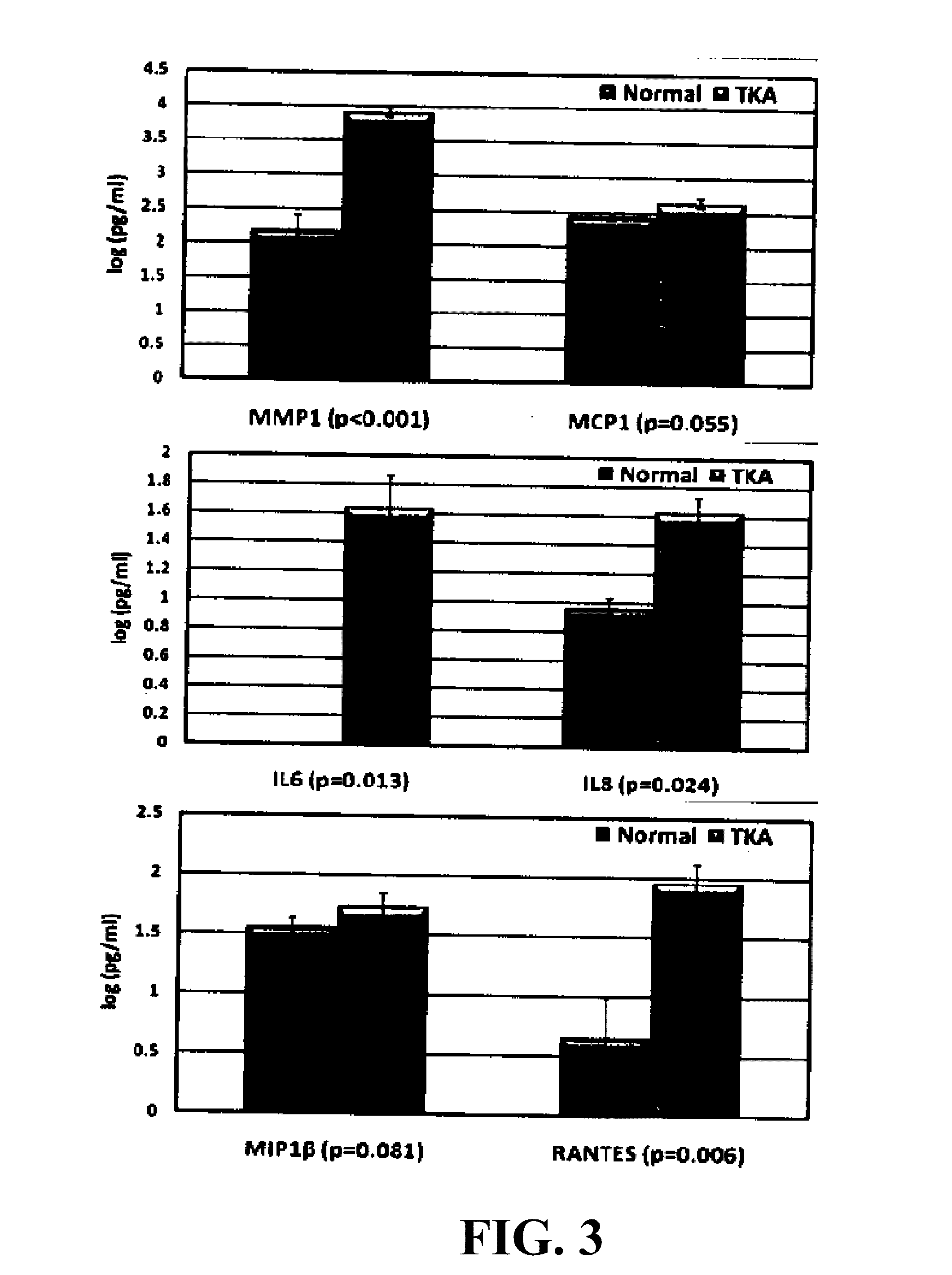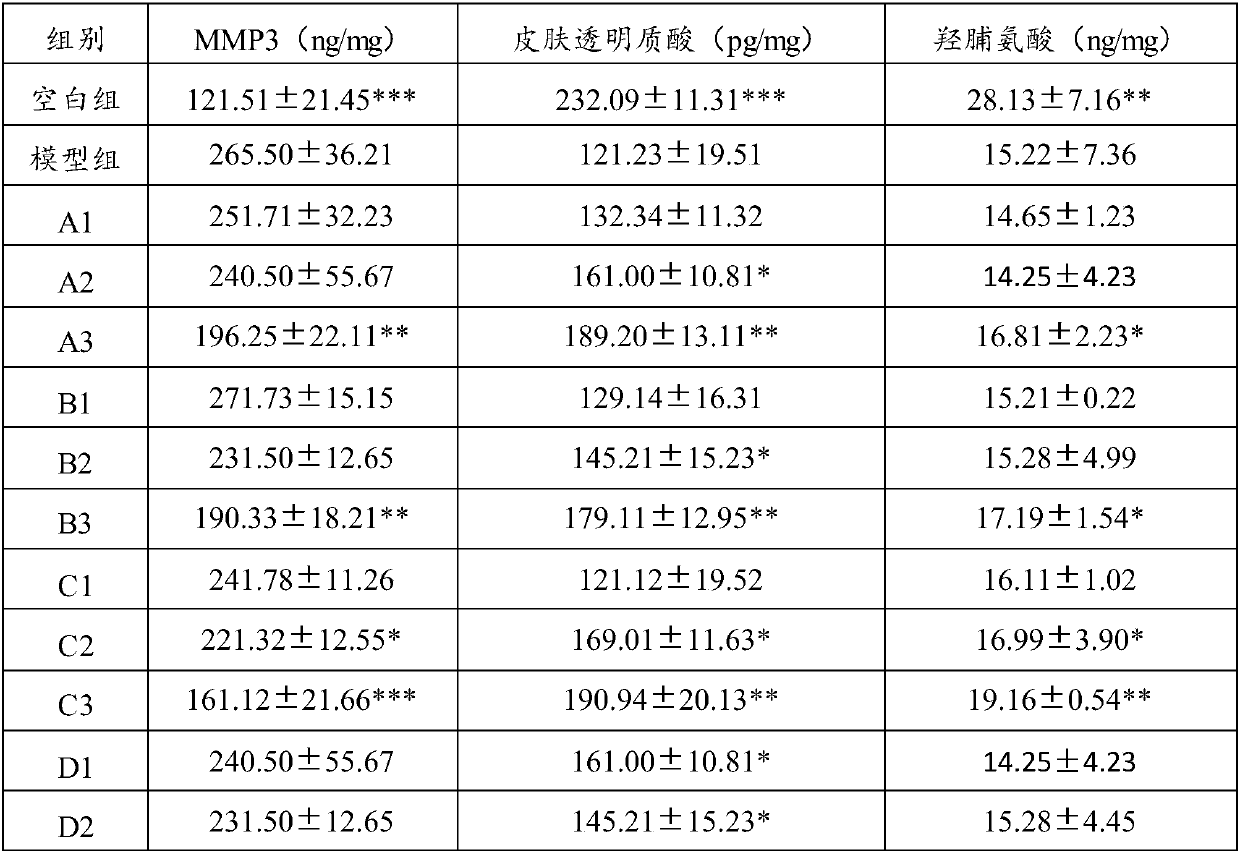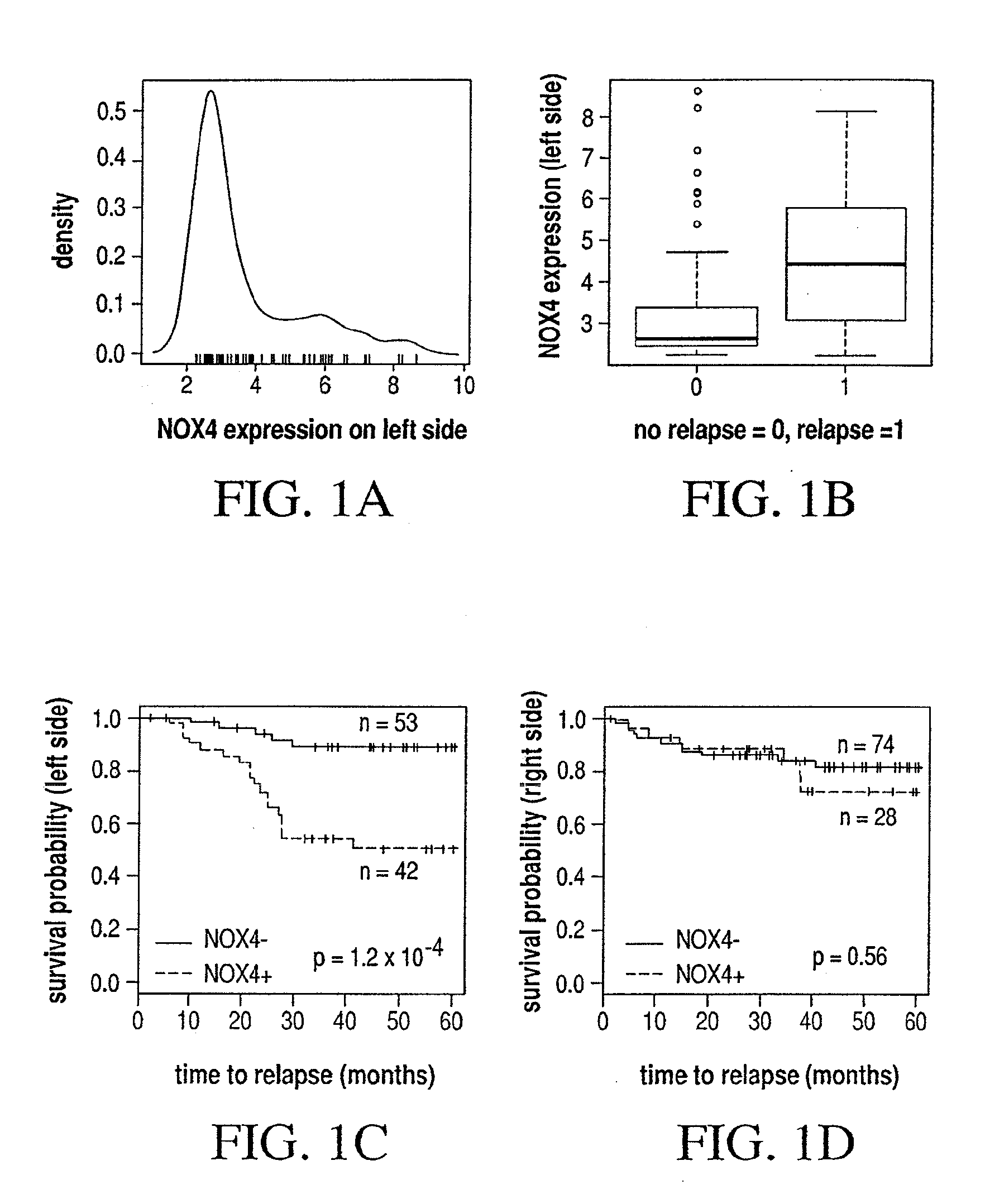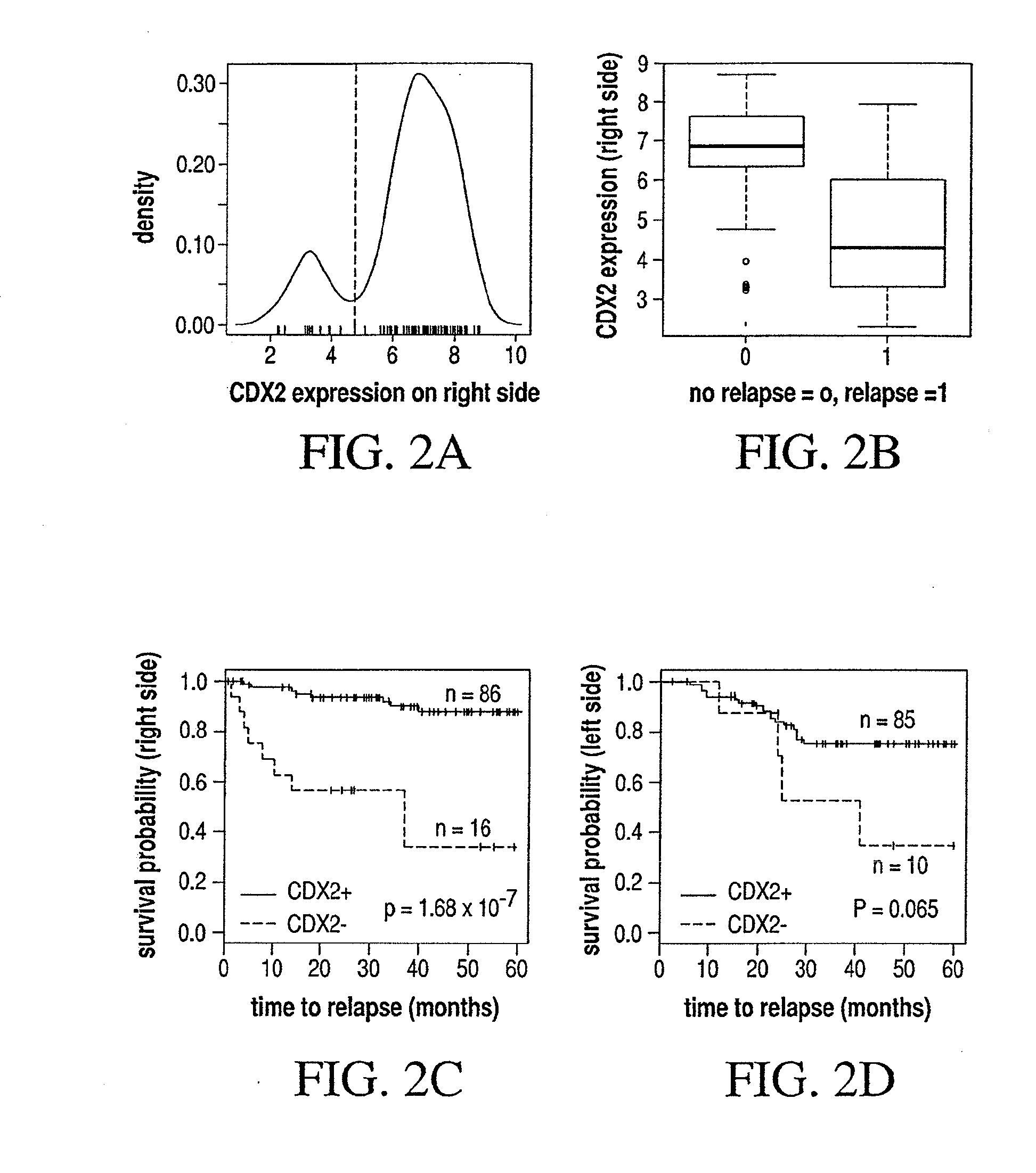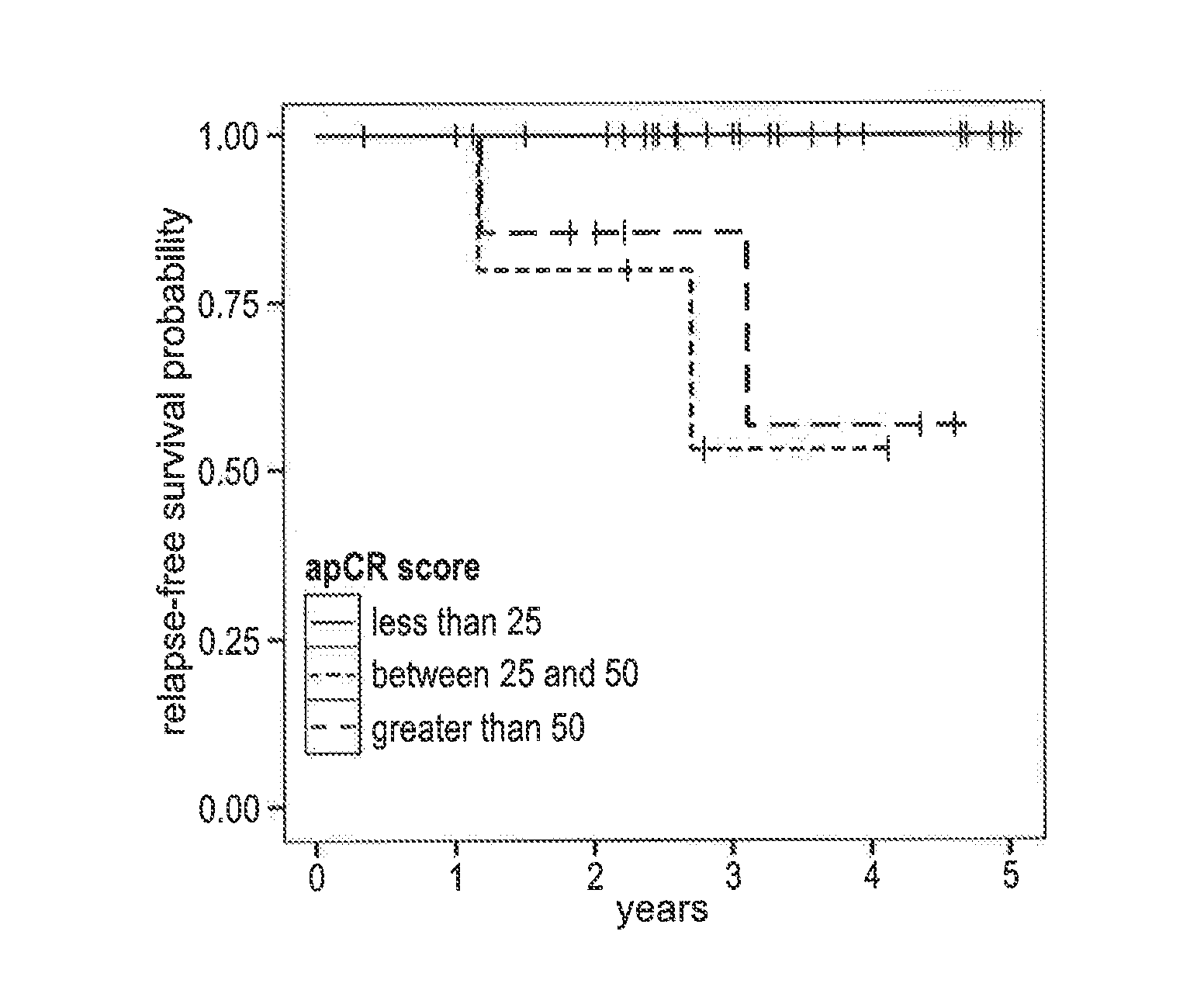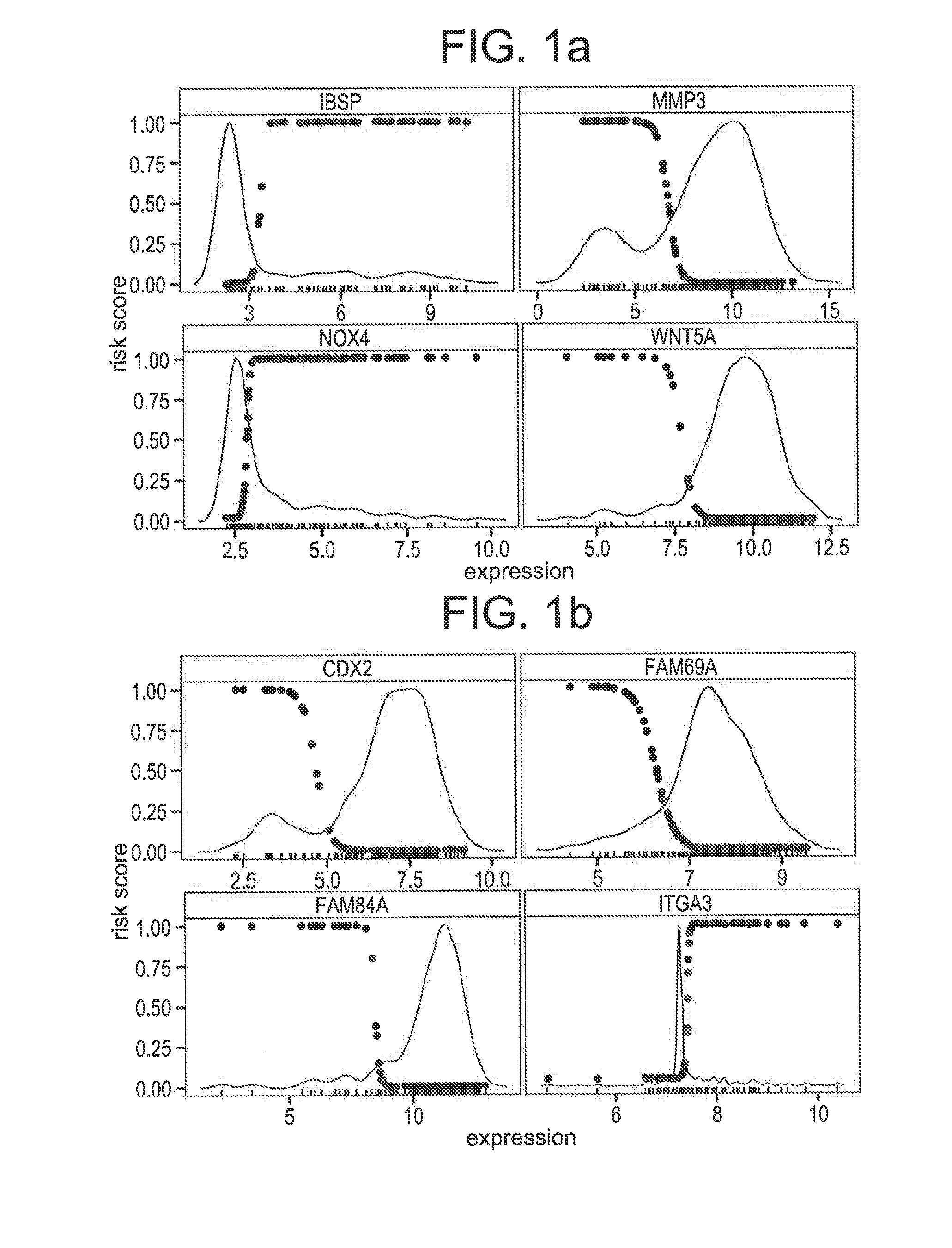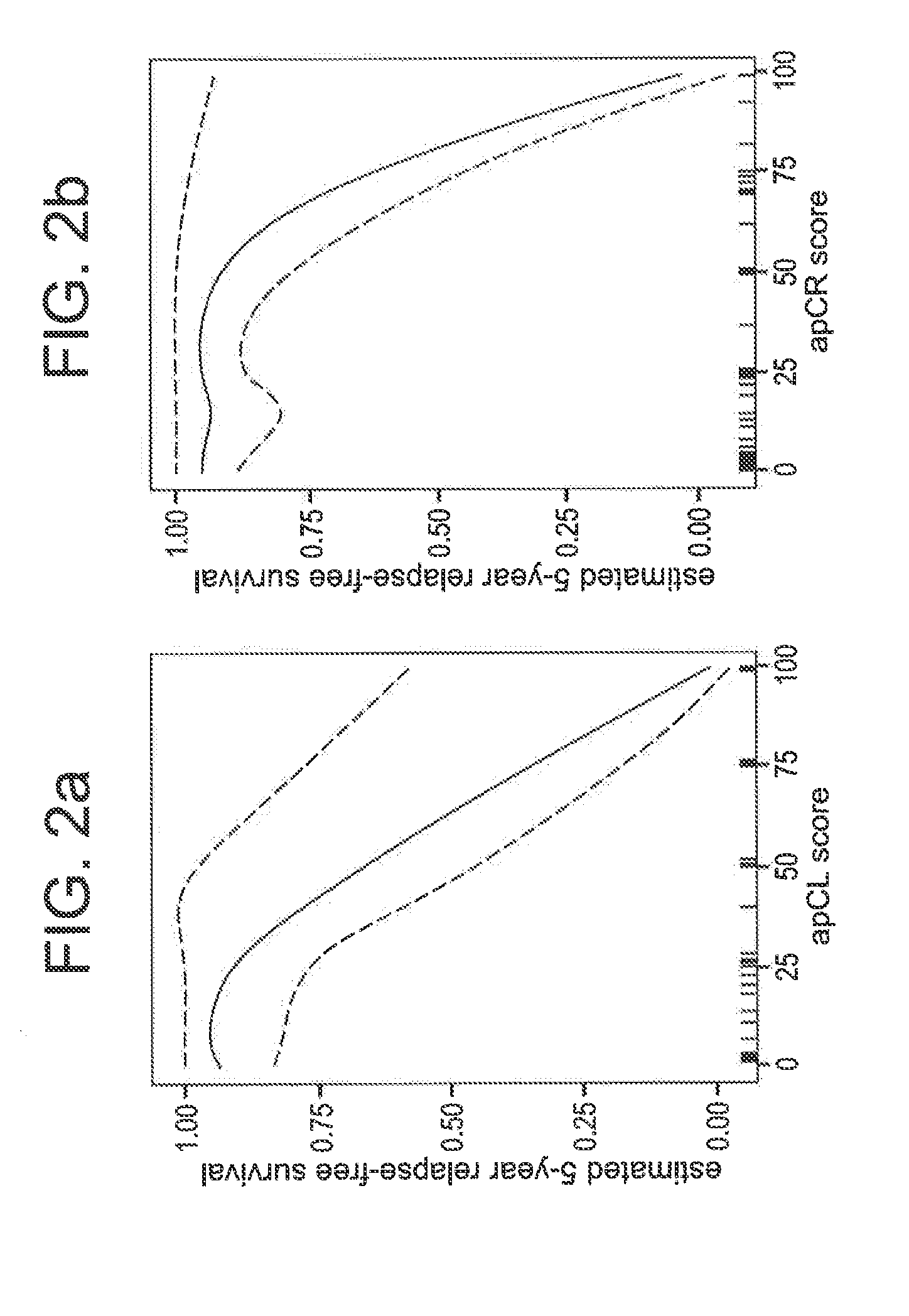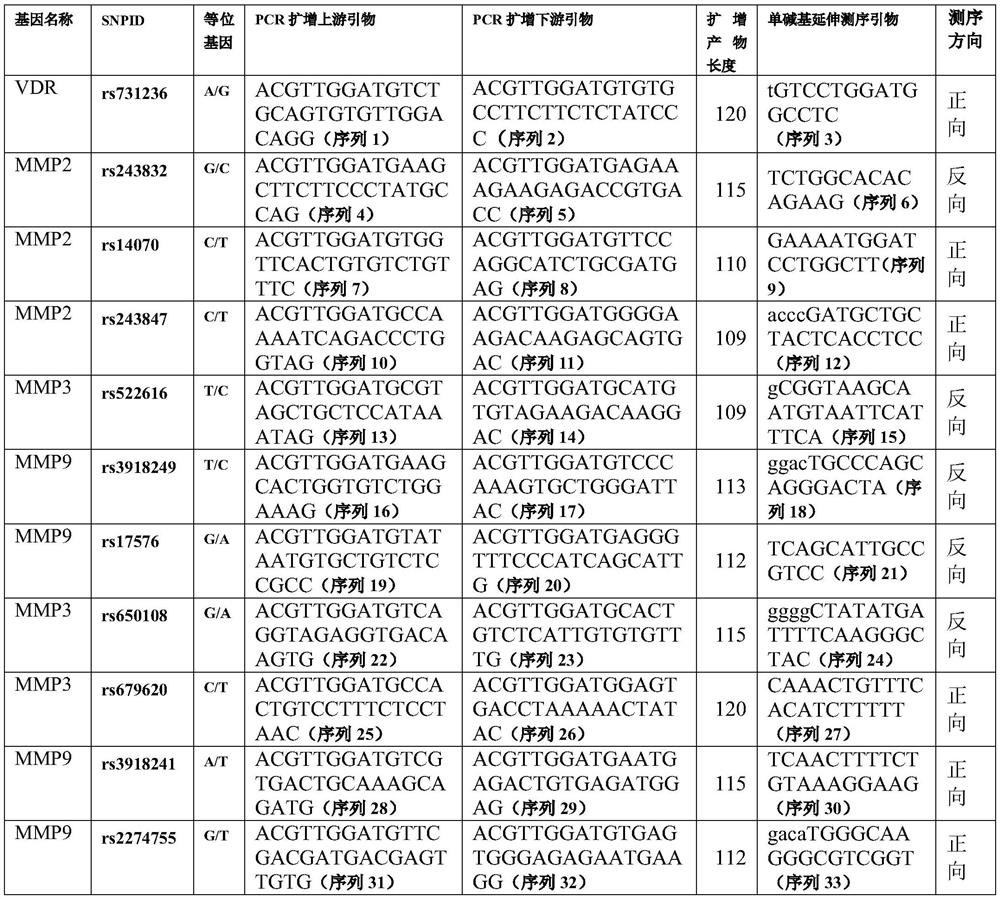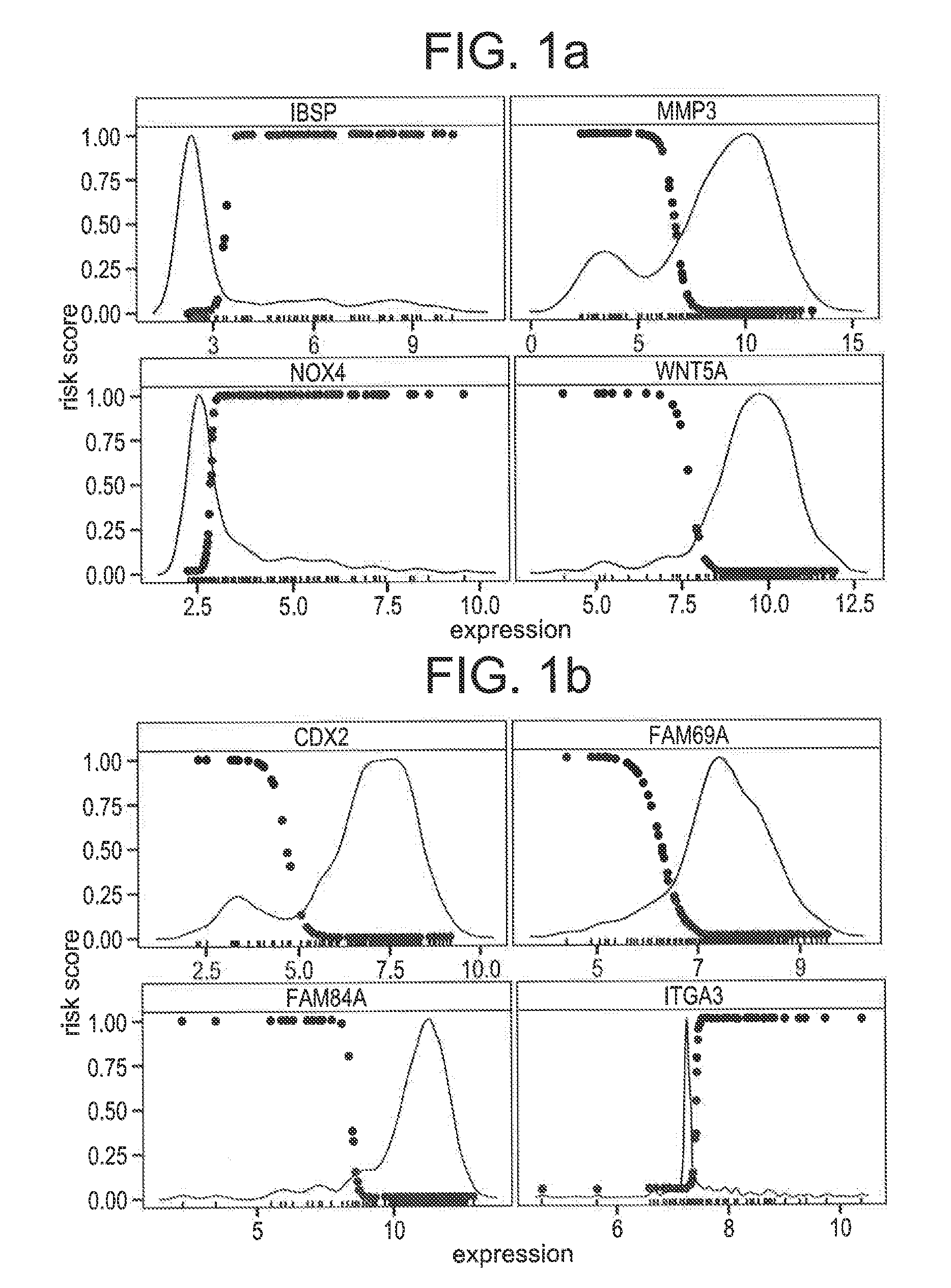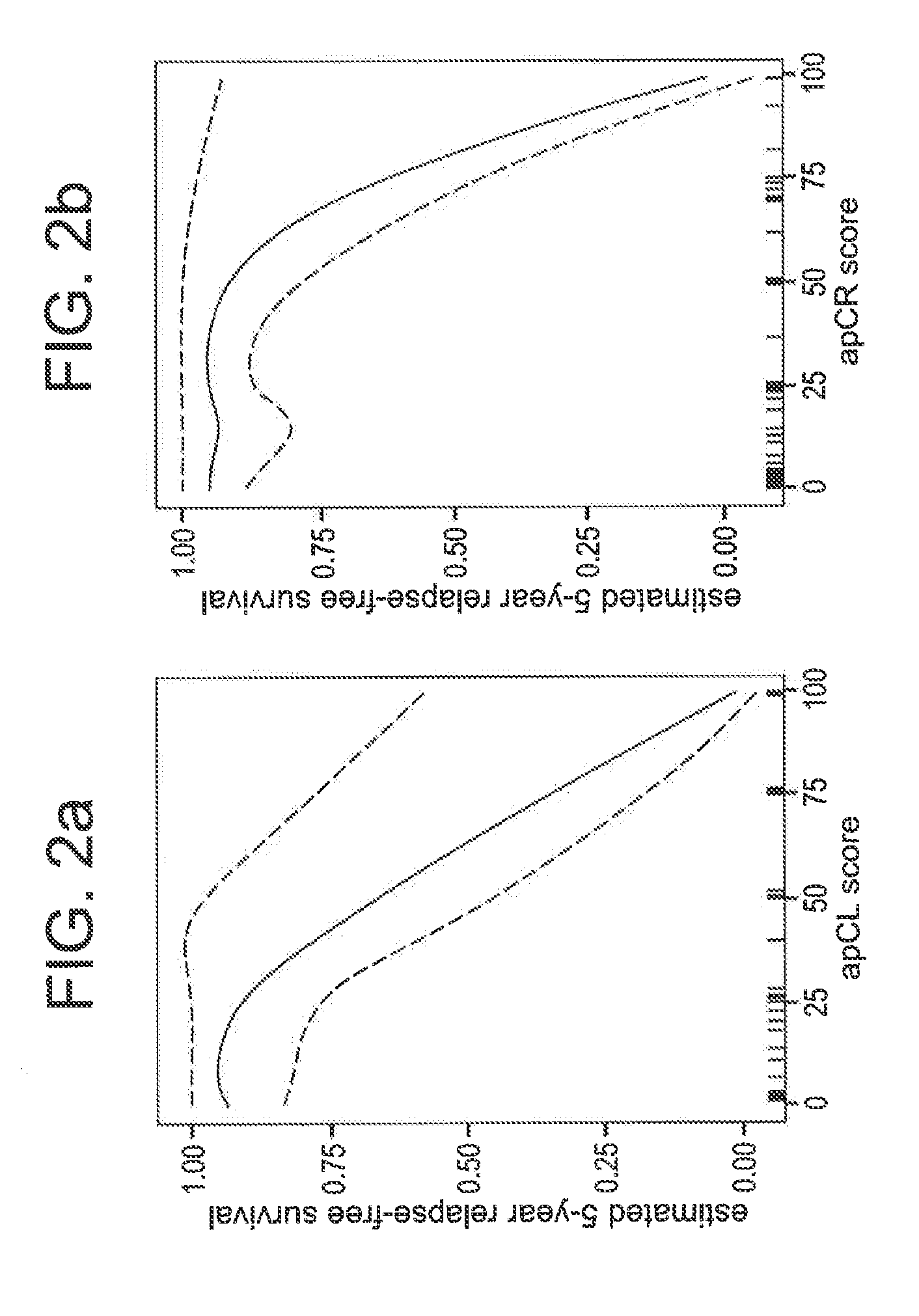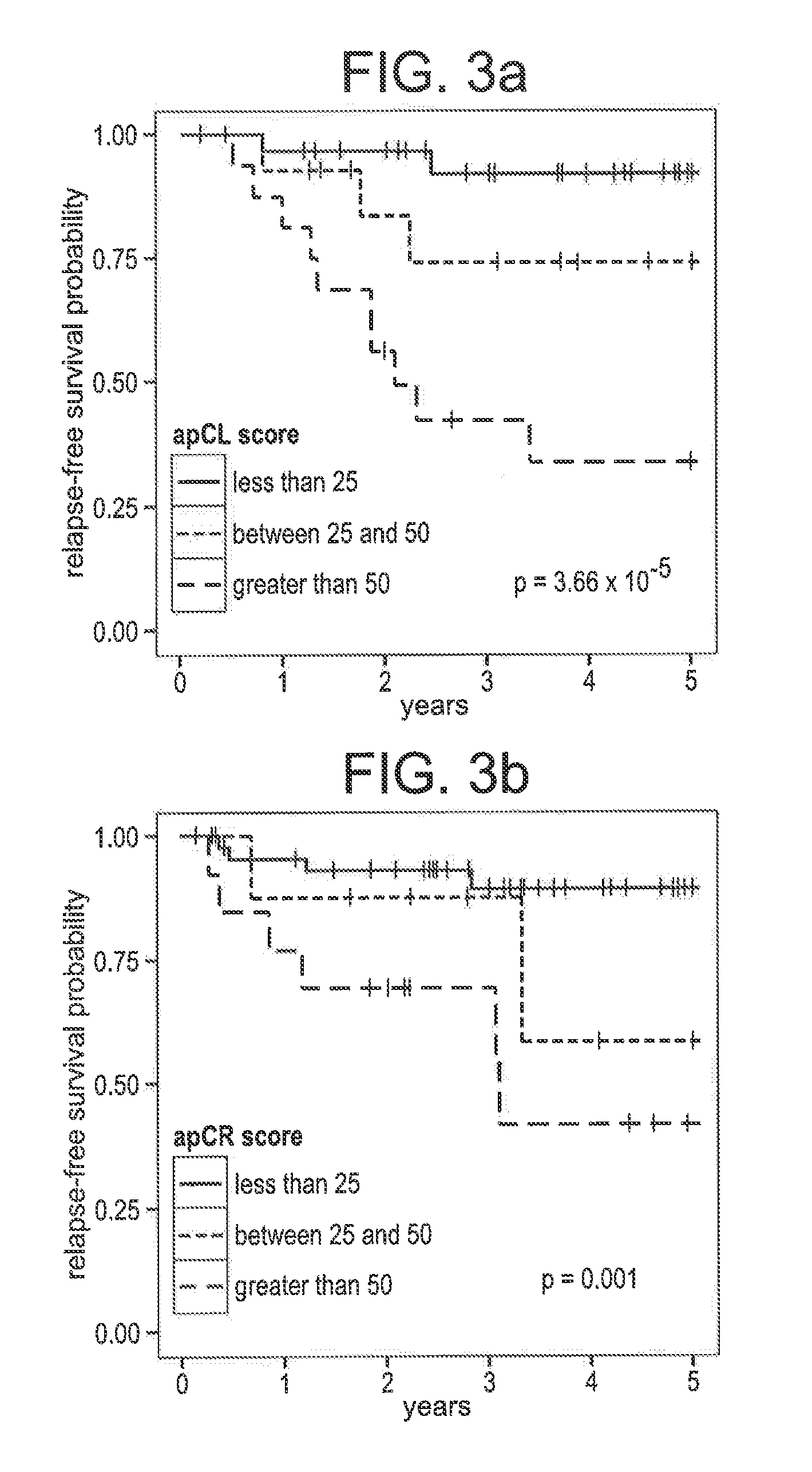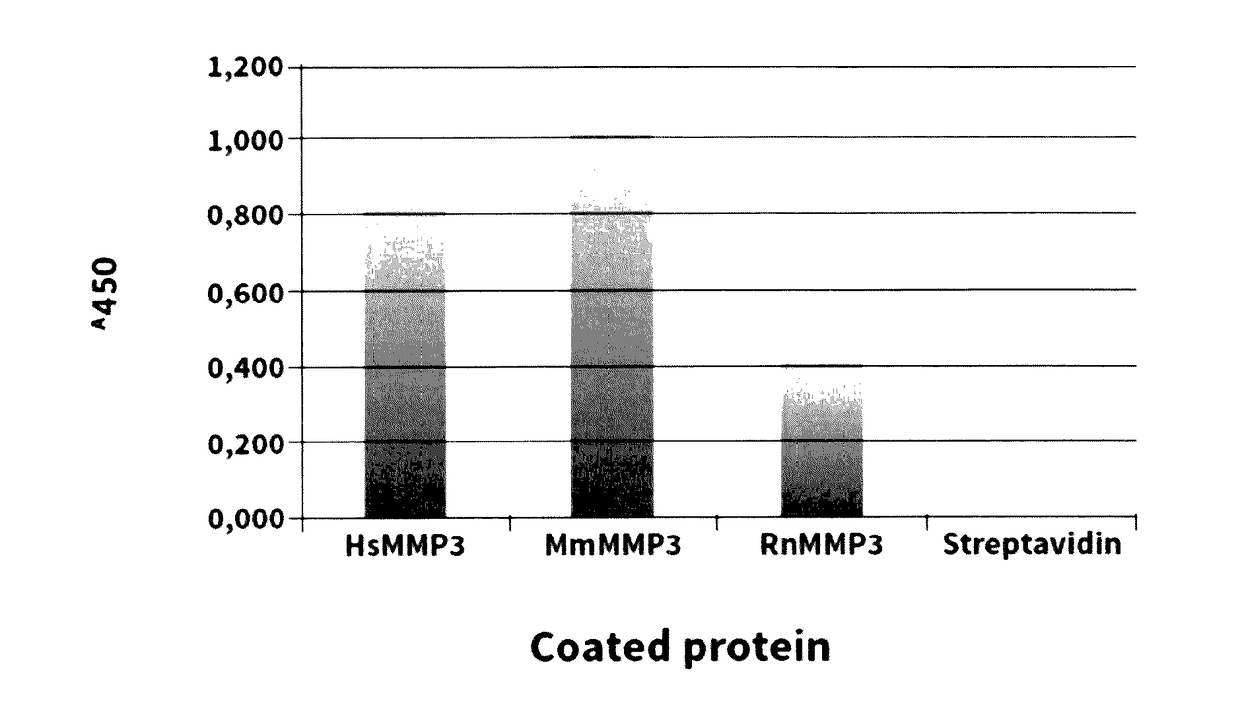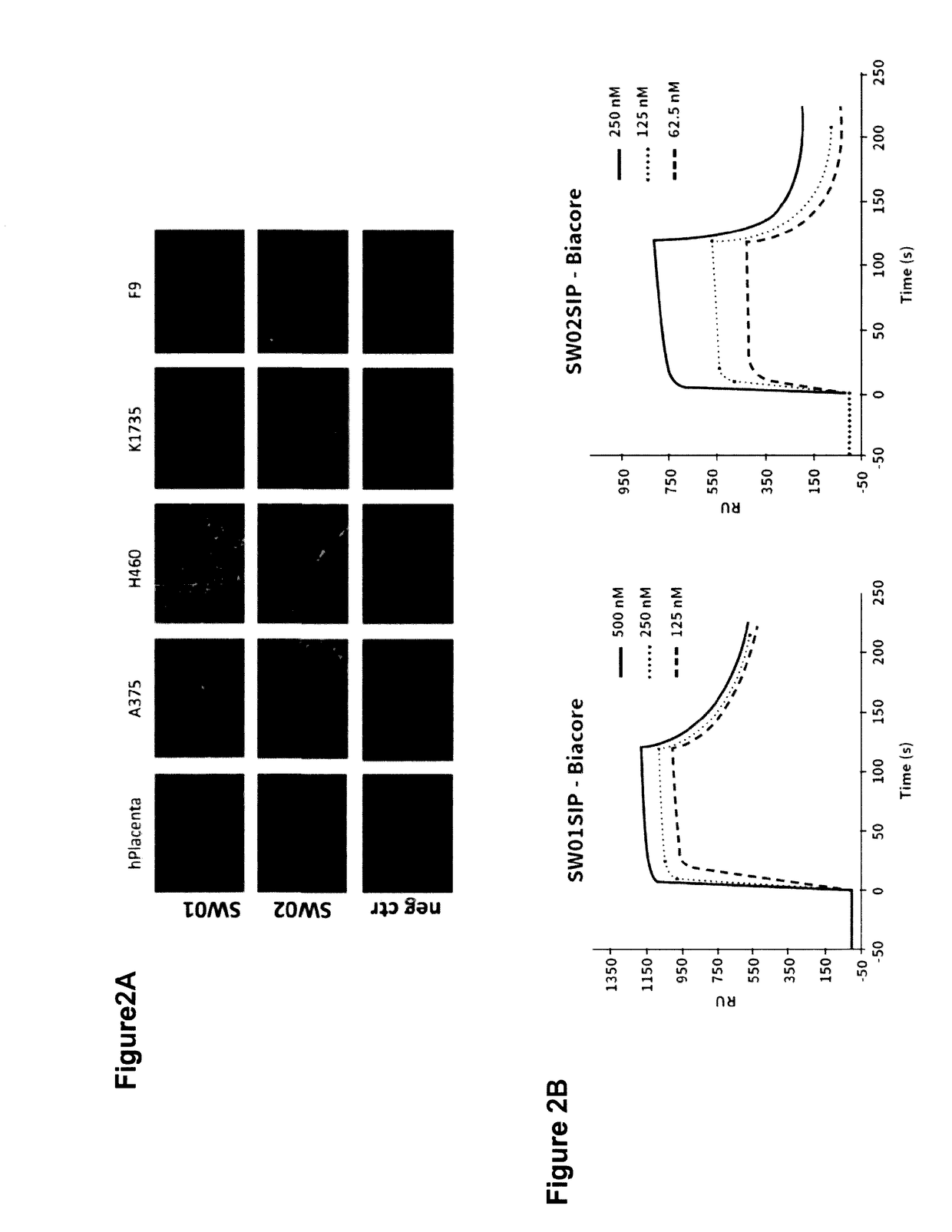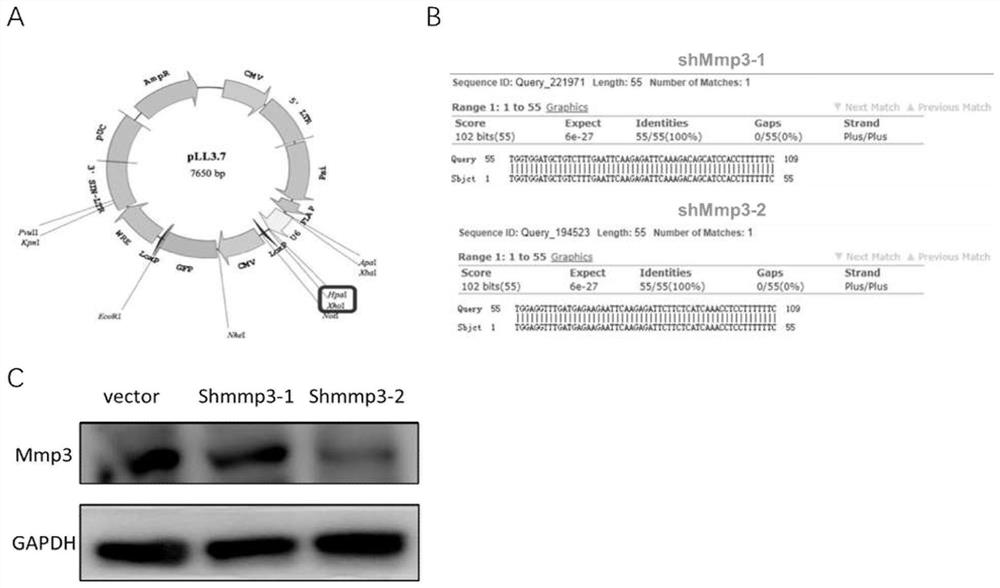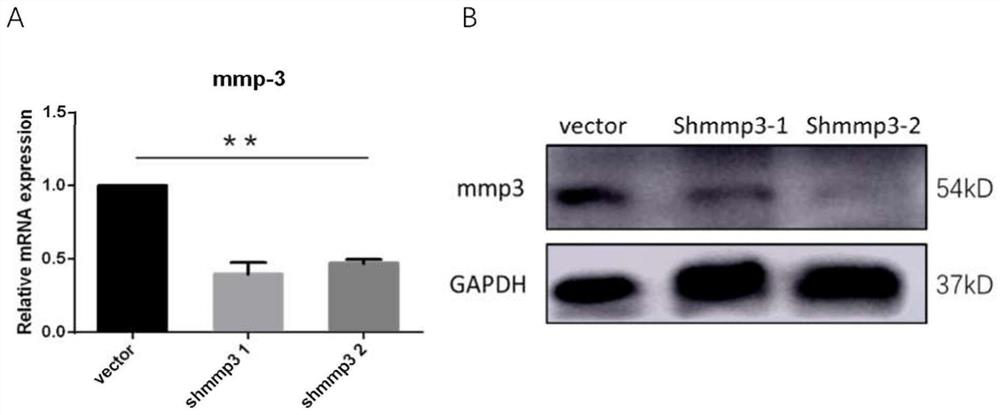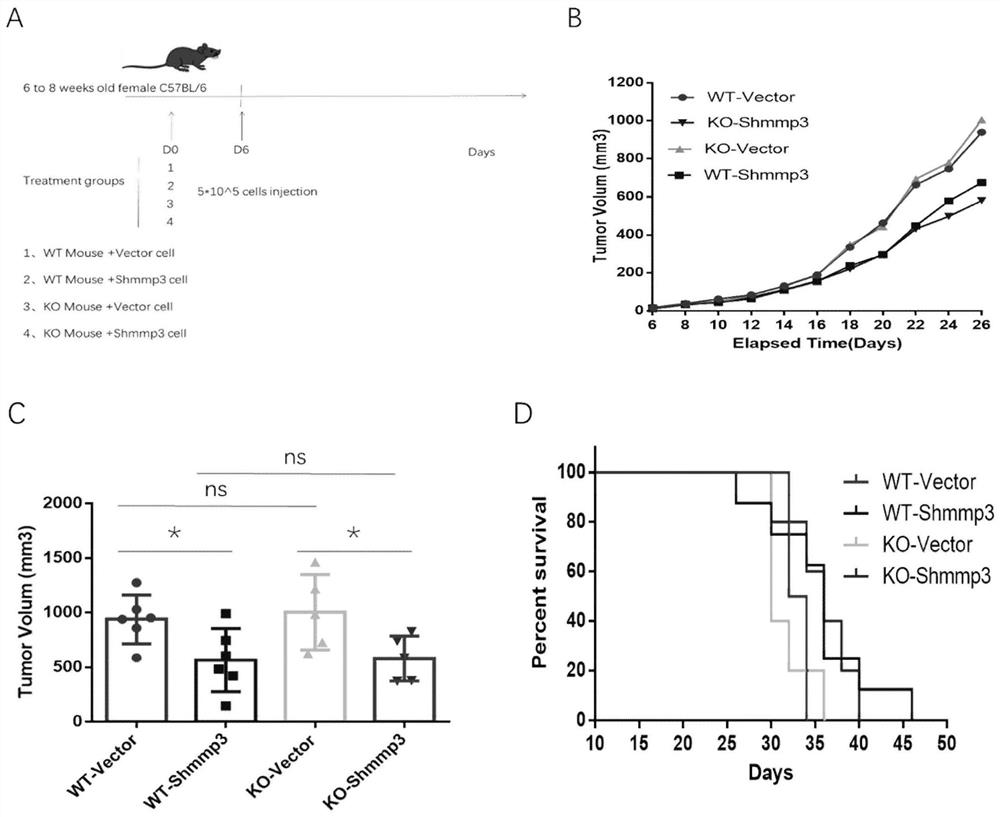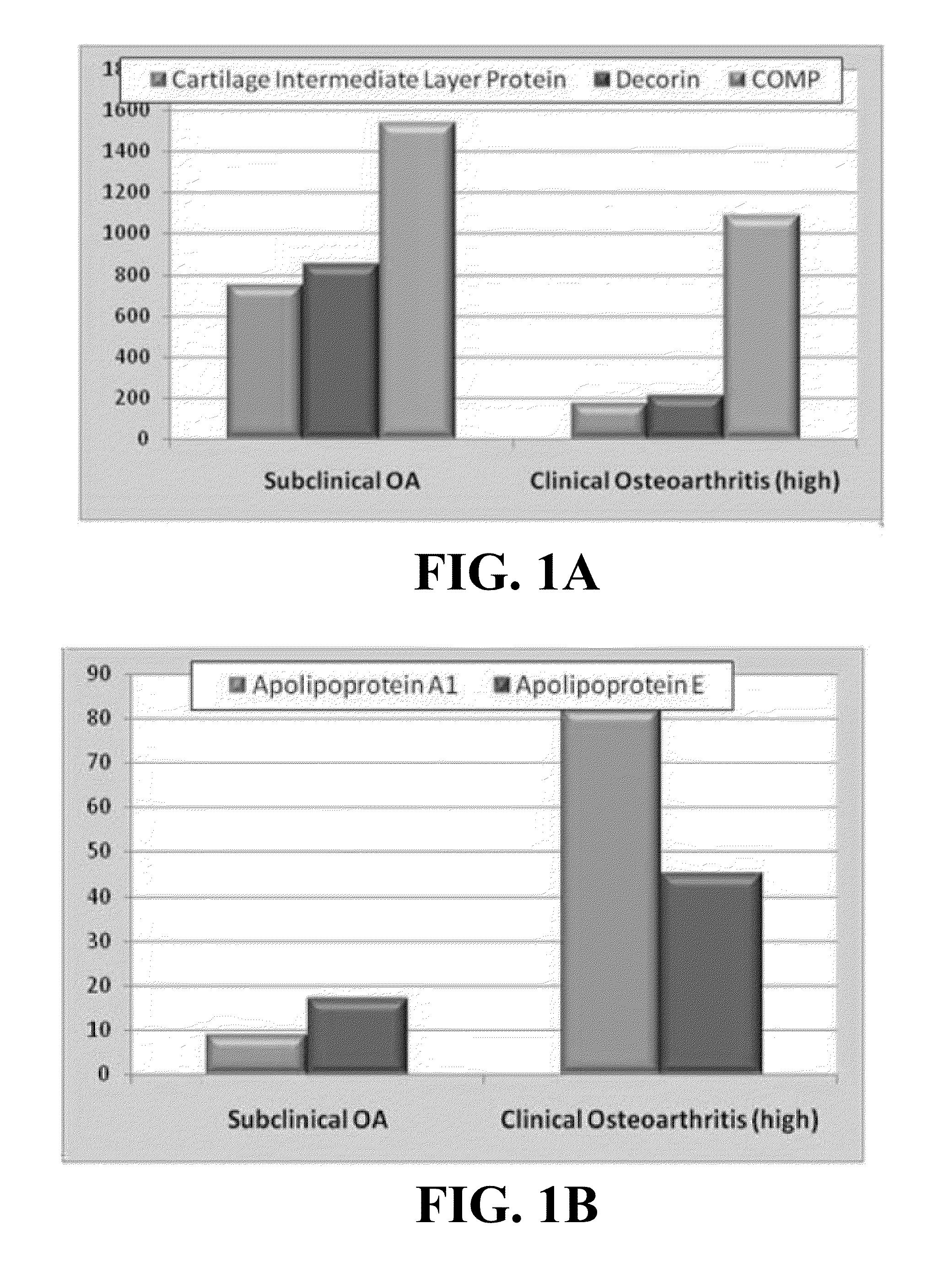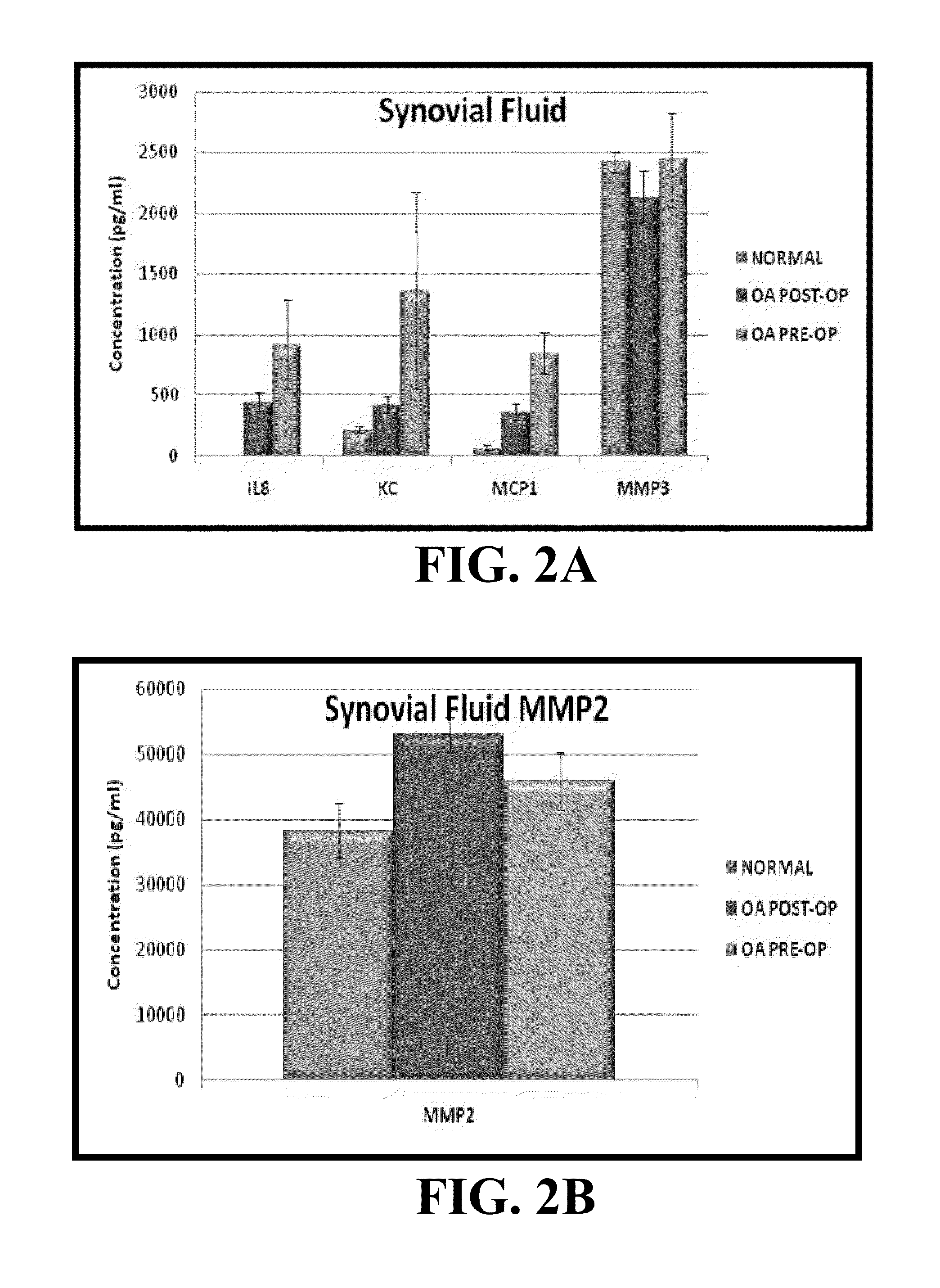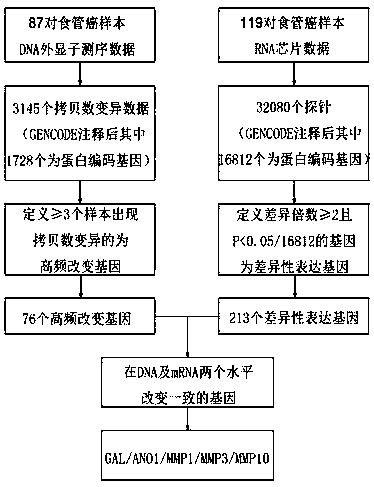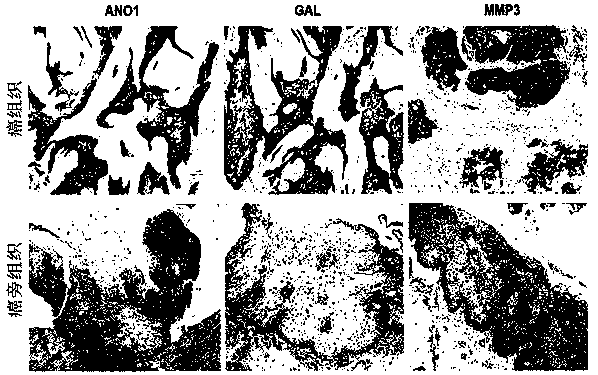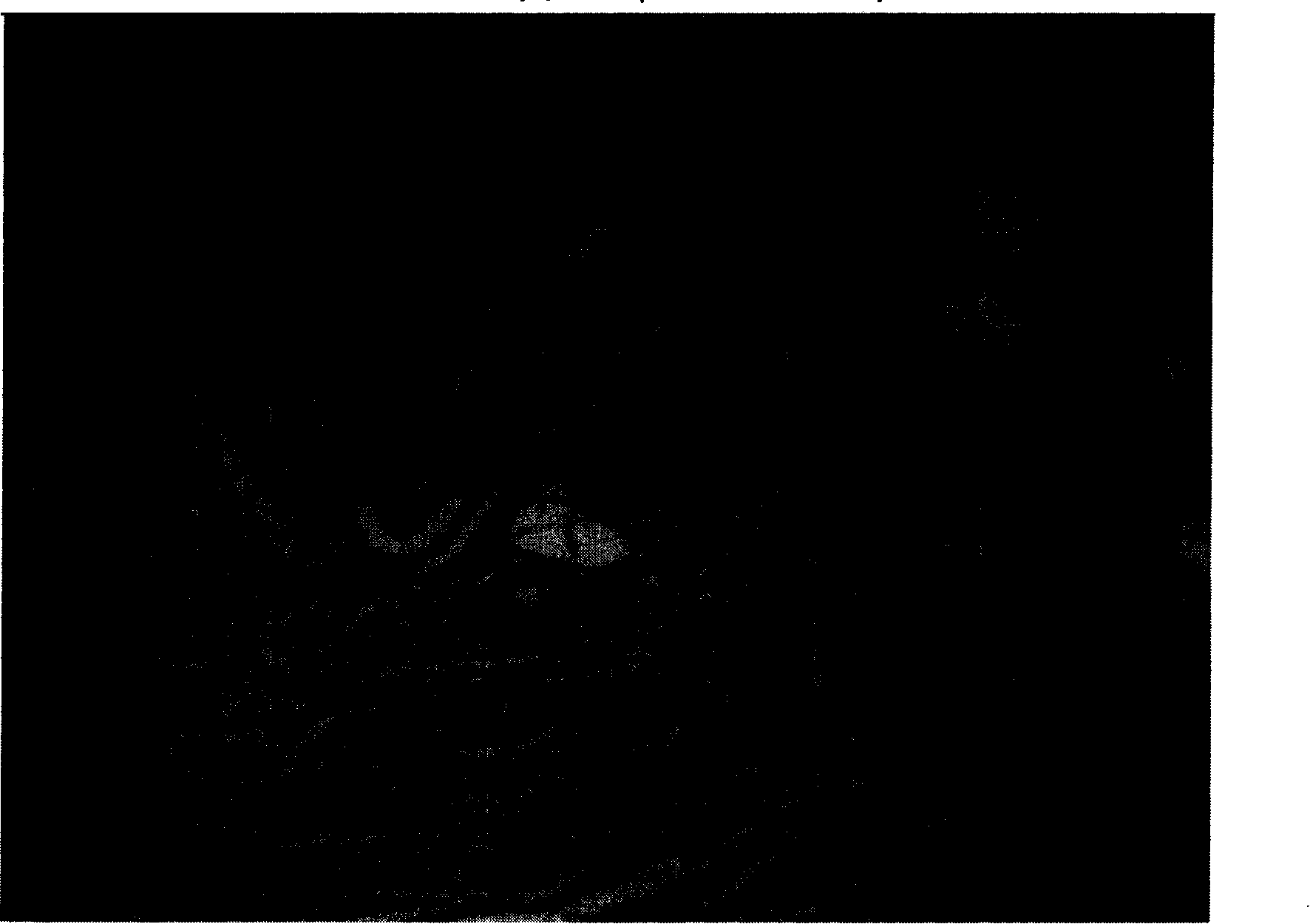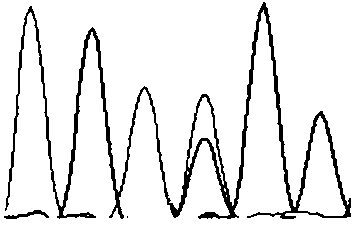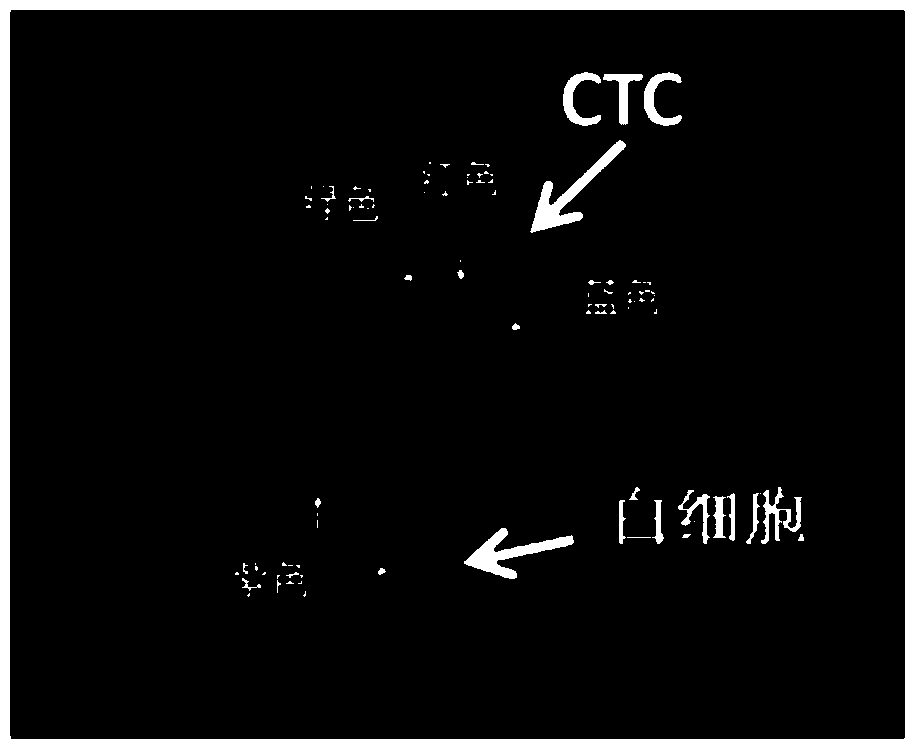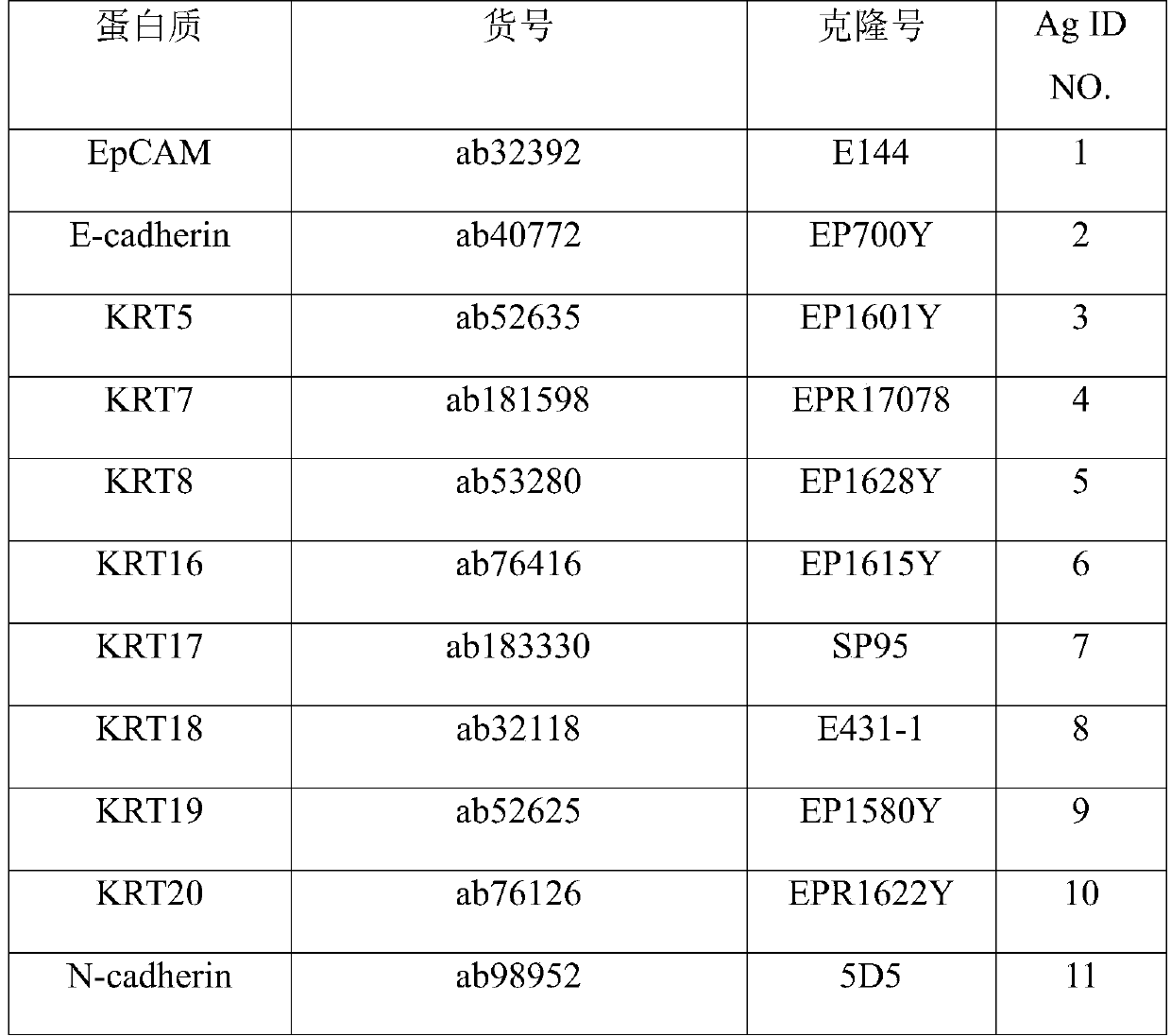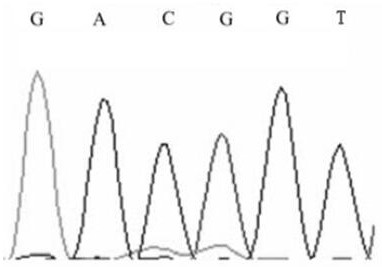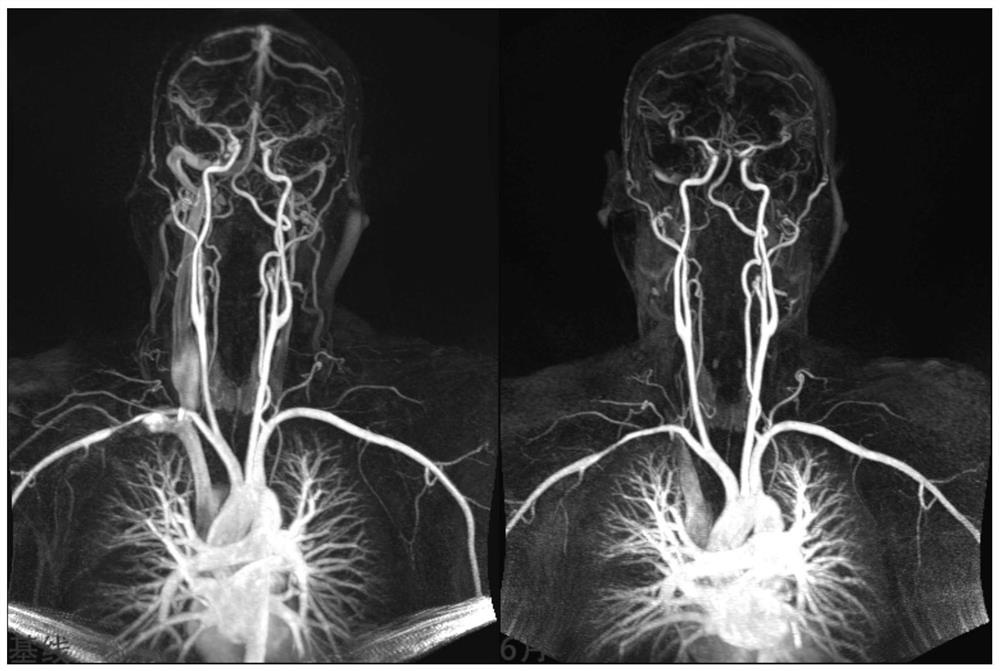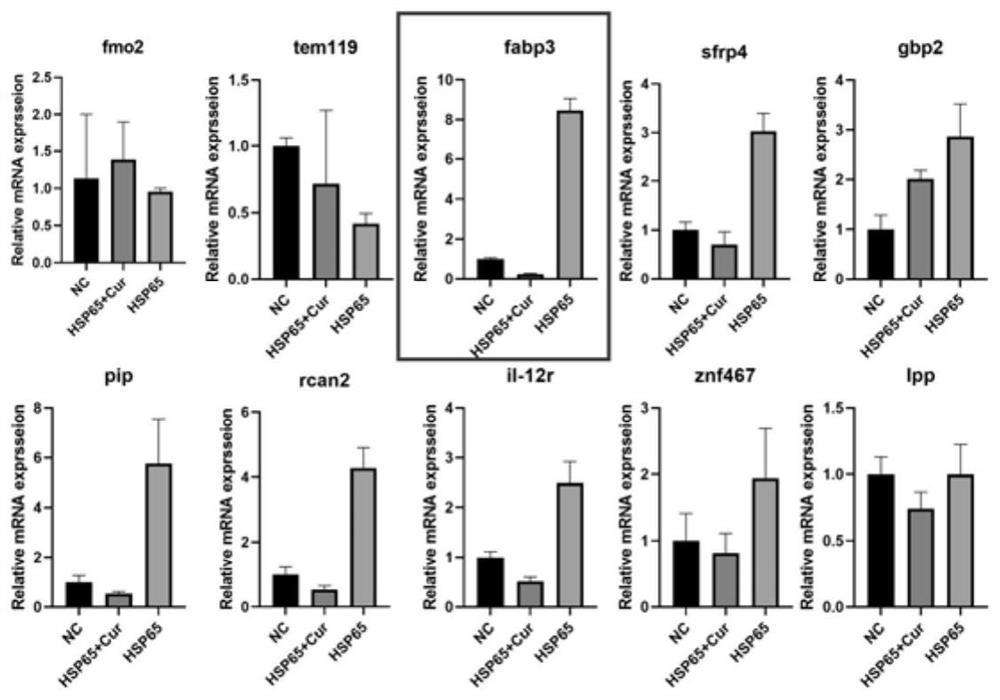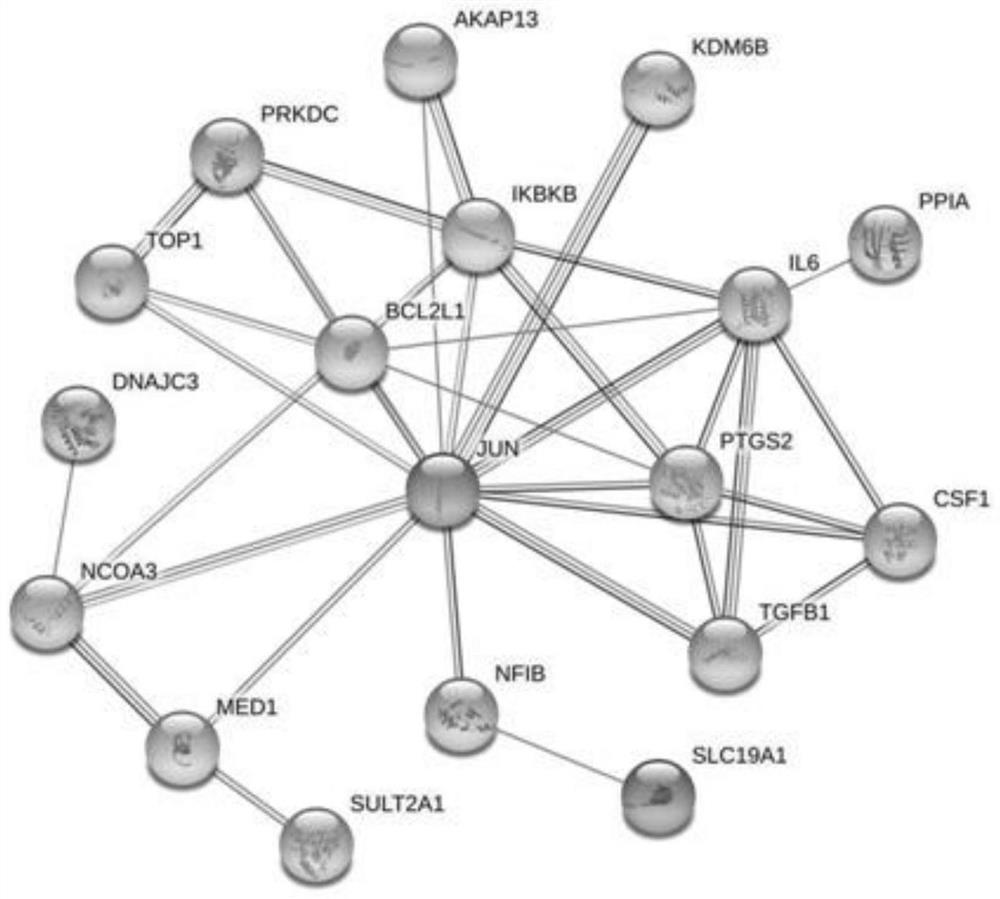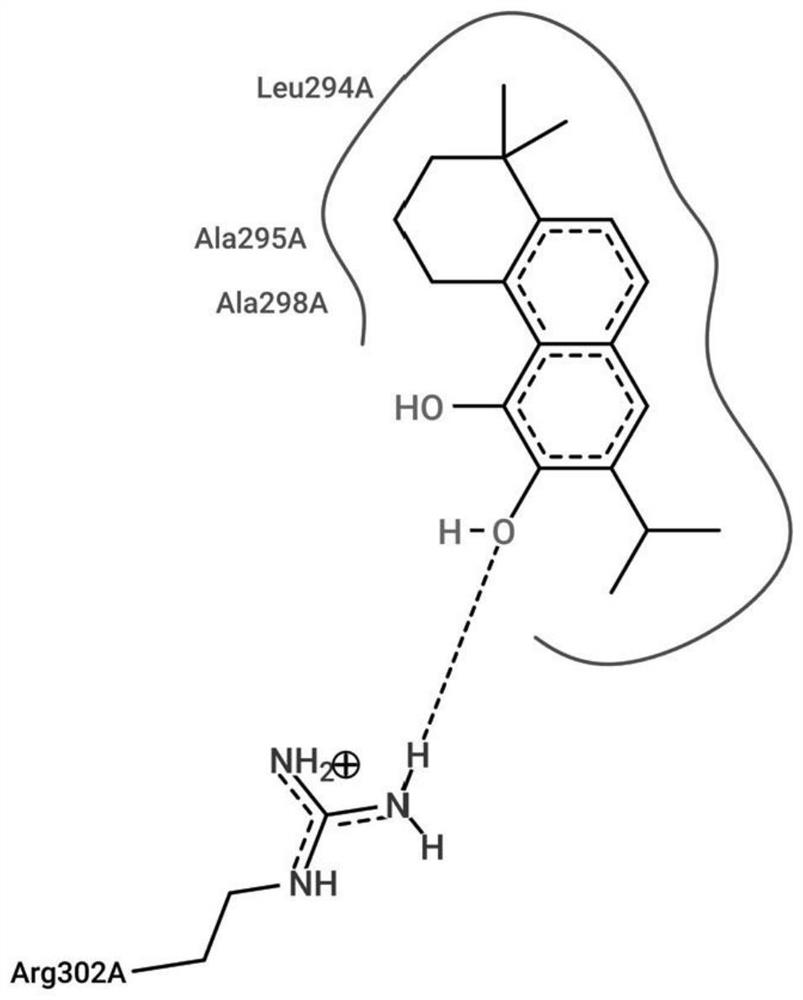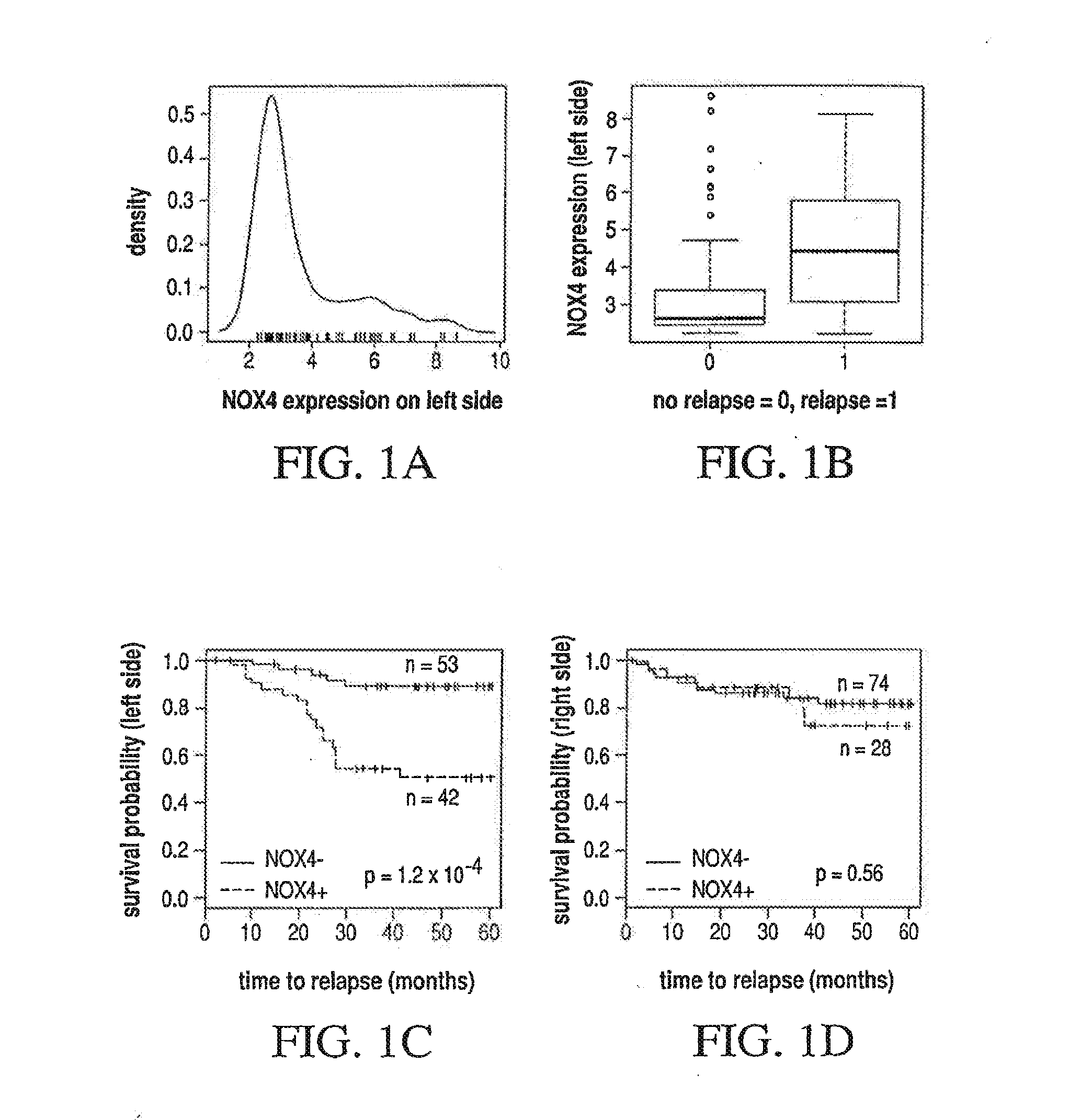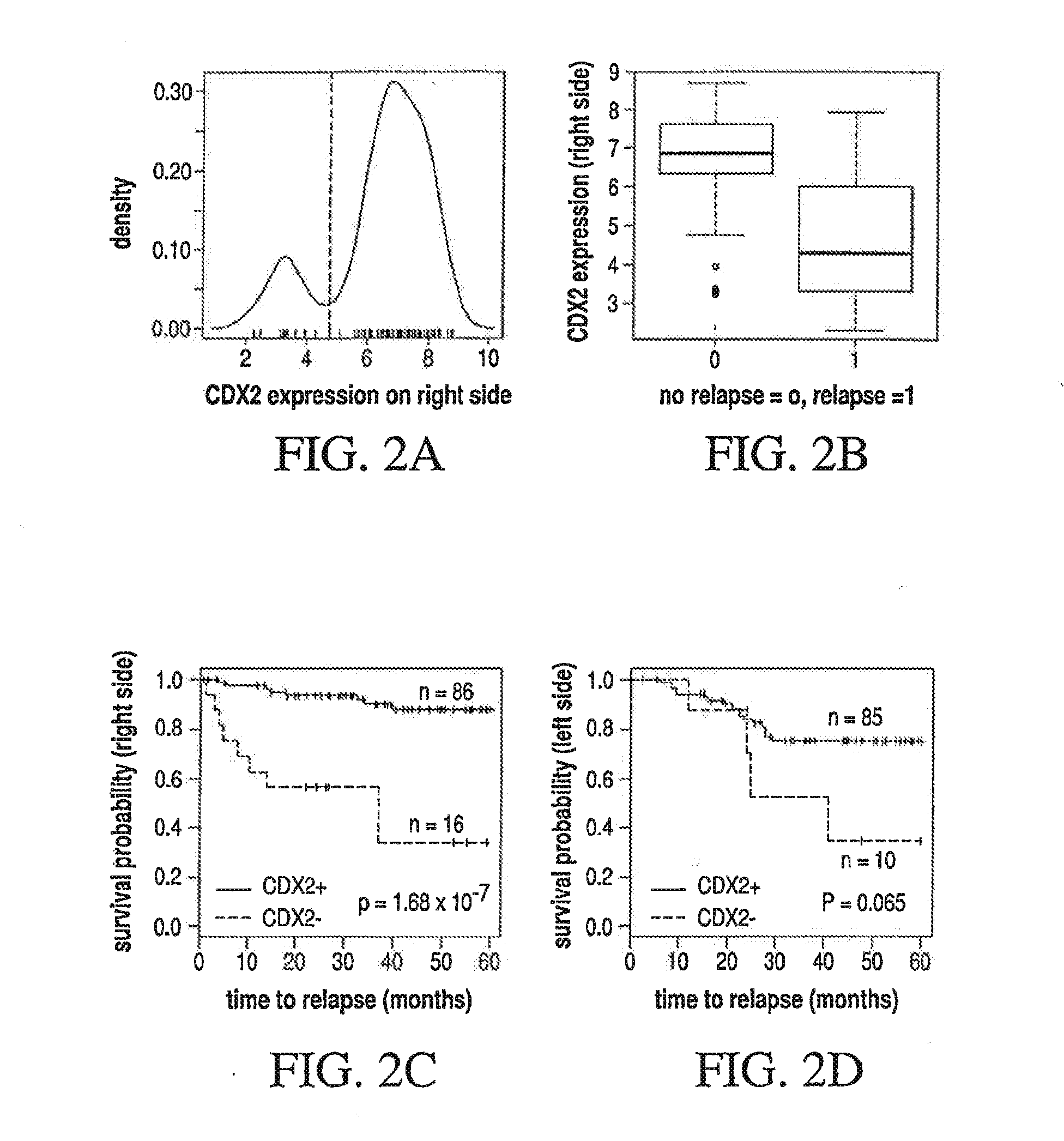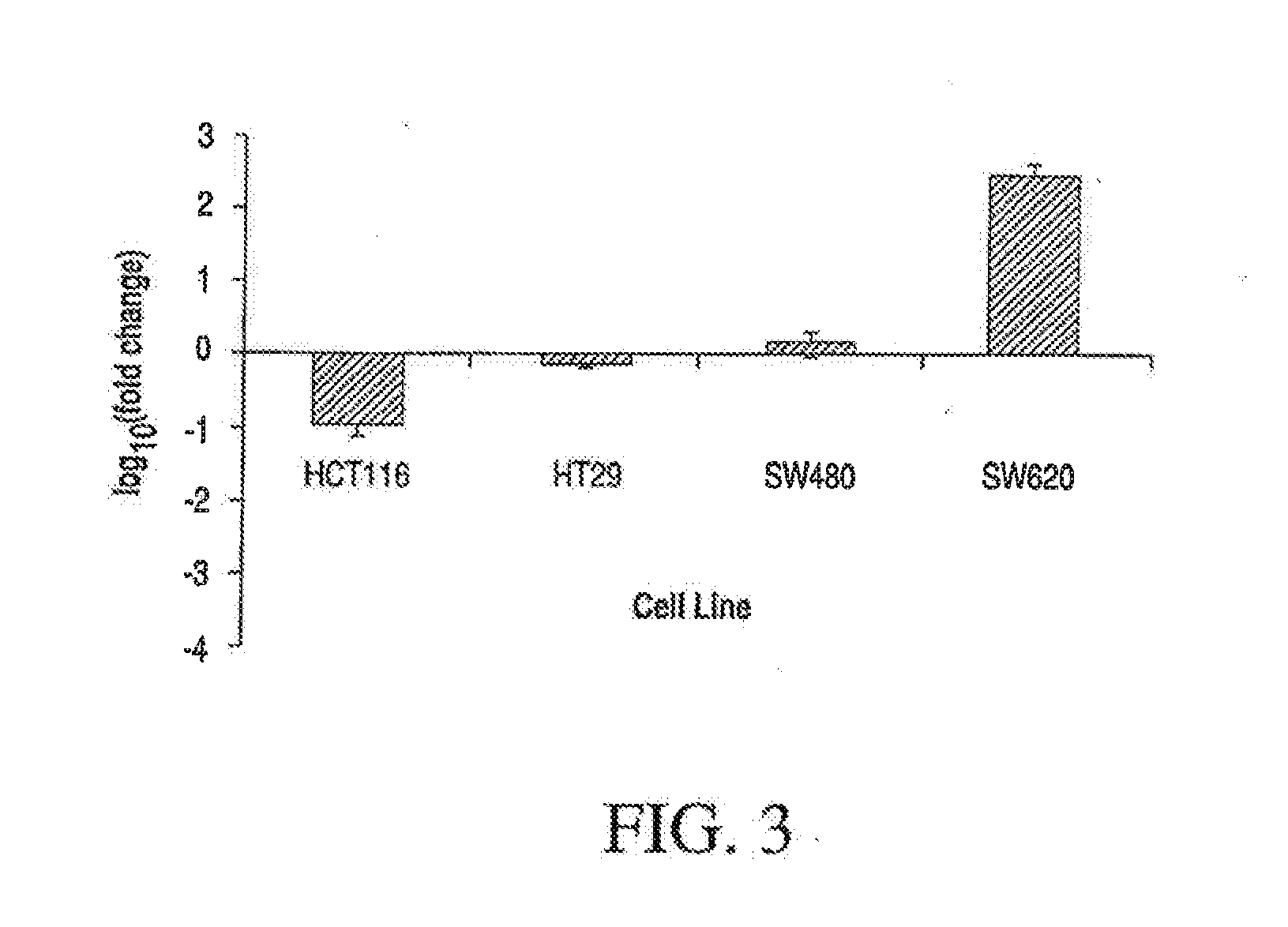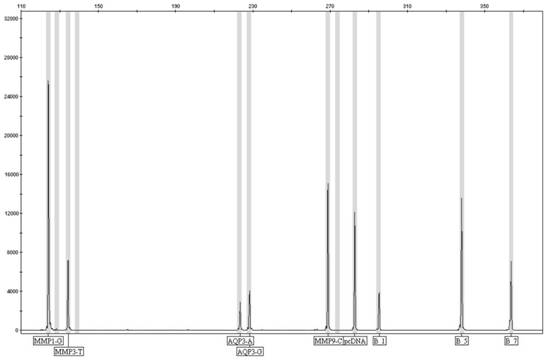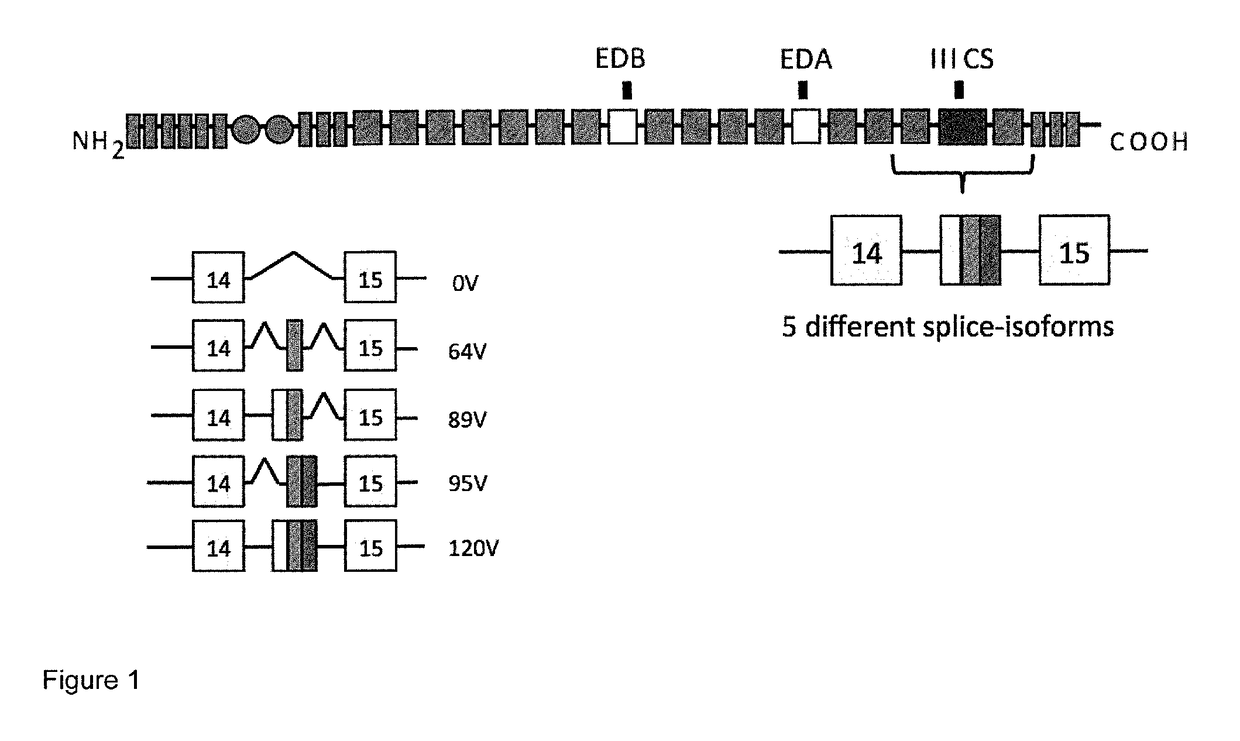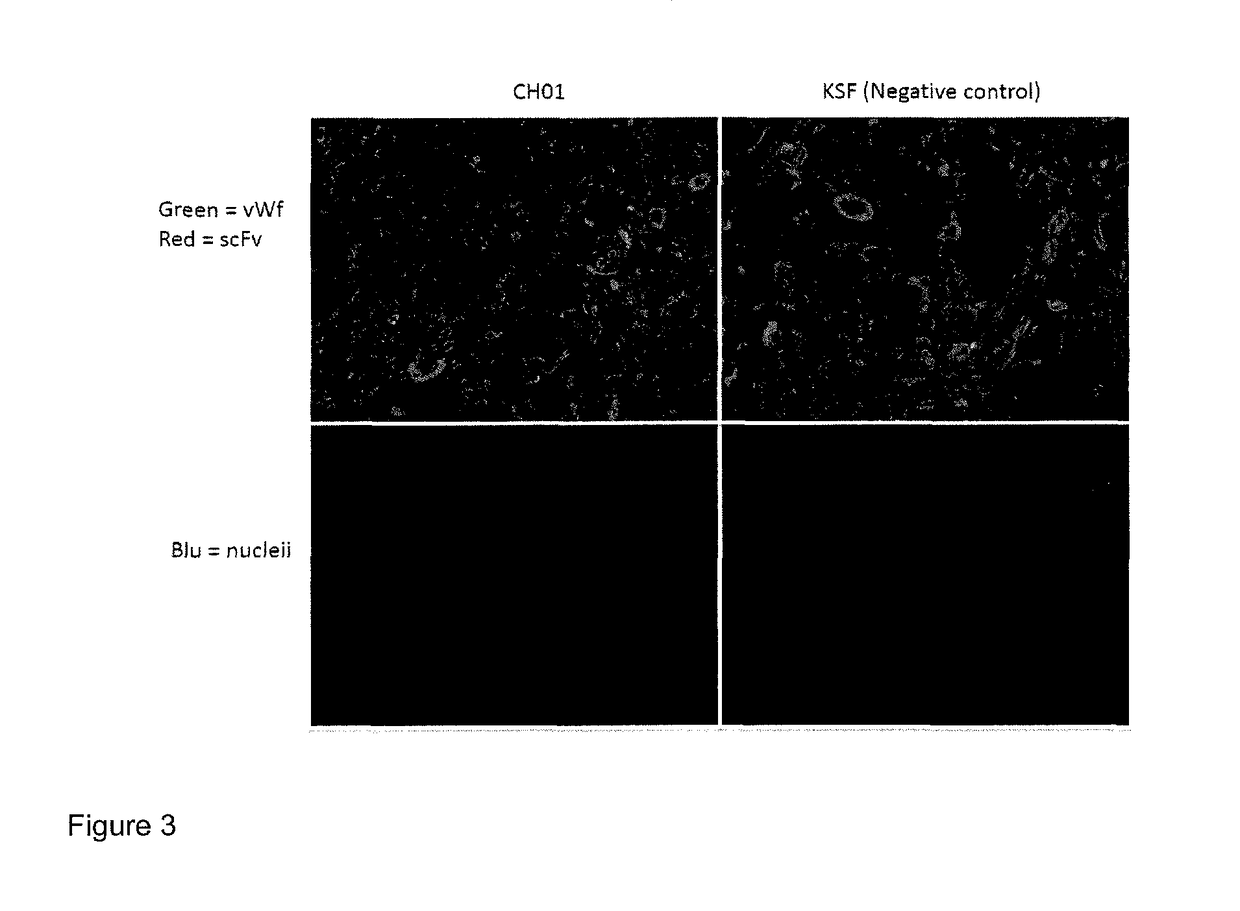Patents
Literature
Hiro is an intelligent assistant for R&D personnel, combined with Patent DNA, to facilitate innovative research.
32 results about "MMP3" patented technology
Efficacy Topic
Property
Owner
Technical Advancement
Application Domain
Technology Topic
Technology Field Word
Patent Country/Region
Patent Type
Patent Status
Application Year
Inventor
Stromelysin-1 also known as matrix metalloproteinase-3 (MMP-3) is an enzyme that in humans is encoded by the MMP3 gene. The MMP3 gene is part of a cluster of MMP genes which localize to chromosome 11q22.3. MMP-3 has an estimated molecular weight of 54 kDa.
Biomarkers of osteoarthritis
Owner:UNIVERSITY OF MISSOURI
Composition of collagen peptide and elastin peptide, and preparation method and application of composition
InactiveCN109602896AIncrease contentReduced MMP3 contentCosmetic preparationsPeptide/protein ingredientsInflammatory factorsHydroxyproline
The invention relates to the technical field of food and medicines, and discloses a composition of a collagen peptide and an elastin peptide, and a preparation method and application of the composition. The composition of the present invention is composed of a collagen peptide and an elastin peptide, wherein the collagen peptide is produced by enzymolysis of a collagen material by pepsin or trypsin, and the elastin peptide is prepared by enzymolysis of an elastin material via papain and / or a complex protease Protamex. According to the present invention, the elastin peptide and collagen peptidein specific molecular weight ranges are prepared by specific processes, and form the composition at a suitable ratio. The composition can significantly increase the content of elastin and collagen indamaged skin at the same time in a small amount of use, significantly increase the content of hyaluronic acid and hydroxyproline and decrease the content of MMP3, and also can inhibit skin inflammatory factors.
Owner:INFINITUS (CHINA) CO LTD
Biomarkers and uses thereof in prognosis and treatment strategies for right-side colon cancer disease and left-side colon cancer disease
InactiveUS20120172244A1Technically accurateImproved accurate quantifierSugar derivativesHydrolasesOncologyTreatment strategy
Genetic biomarkers for left side colon cancer (LCC) (such as expression levels of an RNA transcript or expression product of NOX4, MMP3, or a combination) and right side colon cancer (RCC) (such as expression levels of an RNA transcript or expression product of CDCX2, FAM69A, or a combination), are disclosed. Methods for using the biomarkers in providing a prognosis of relapse-free survival probability in patients having LCC or RCC are also presented. Prognostic panels using gene expression values of the biomarkers are also presented. Computer implemented methods employing the biomarkers, and as well as for determining relapse-free survival probability in a patient having RCC or LCC are provided. A genetic method for classifying a colon cancer tissue as a RCC or as a LCC is also disclosed.
Owner:UNIV OF NOTRE DAME DU LAC
Method to measure inflammation in the conjunctiva of patients with tear dysfunction
InactiveUS20140314798A1Unsuitable for treatmentBiocideTetracycline active ingredientsConjunctivaOcular surface
The present invention concerns methods and compositions for treatment and determination of the presence or likelihood of an individual to have an ocular surface inflammation. In specific embodiments, a sample from the individual is assayed for the expression level of three or more genes, including IL-6, MMP3, MMP9, IFNy, SPRR-IA, HLA-DRA, MUC5AC, K7, and IL17A. Treatment is provided to an individual with ocular surface inflammation based upon the gene analysis.
Owner:BAYLOR COLLEGE OF MEDICINE
Separated nucleic acid sequence of total number of piglets related gene MMP3
InactiveCN101481740AOvercoming the shortcomings of conventional selection for reproductive traitsMicrobiological testing/measurementDNA/RNA fragmentationMarker-assisted selectionIntein
The invention relates to a separated nucleic acid sequence of a total number born trait related gene MMP3 of a pig in the technical field of genetic engineering. The separated nucleic acid sequence is provided with a sequence shown by an SEQ ID No:1, the length of which is 1346bp; the nucleic acid sequence shows a pair of allele-specific nucleic acid primers the lengths of which are 20bp; the pair of nucleic acid primers is specifically hybridized; and the sequence shown by the SEQ ID No:1 containing an eighth exon, a ninth exon and an eighth intron of the MMP3 gene of the pig is amplified. The implementation and the application of the separated nucleic acid sequence can be used for detecting and judging the quality of total number born traits of the pig; the molecular marker is applied to conduct a marker assisted selection during breeding of the pig, thereby correcting the defect during conventional selection of reproductive traits of the pig; and the separated nucleic acid sequence has important practical significance.
Owner:SHANGHAI JIAO TONG UNIV
Combination of treating and/or preventing hemorrhoid
InactiveCN1660433APharmaceutical active ingredientsCardiovascular disorderInos inhibitorTreatment effect
A composition for preventing and / or treating piles contains at least one NO synthetase (NOS) inhibitor, especially iNOS inhibitor, at least one vascular angiogenesis inhibitor, especially VEGF inhibitor, and at least one matrix metal proteinase (MMP) inhibitor, especially MMP1, MMP3, MMP9 and / or MMP12 inhibitor.
Owner:BEIJING BIOSIS HEALING BIOLOGICAL TECH
Stratification of Left-Side and Right-Side Colon Cancer
Compositions / methods for employing fresh-frozen or FFPE colon cancer tissue in left side colon cancer (LCC) and right-side colon cancer (RCC) disease patients for risk of relapse assessment / stratification is provided (3 strata and a 4 strata methodology). An RCC gene panel of 4 genes (FAM69A, CDX2, FAM84A, ITGA3), and 9 genes (FAM69A, CDX2, ITGA3, FAM84A, ITPRIP, RAB3B, SMAD3, PCSK5, MMP28), is provided. An LCC gene panel of 4 genes (NOX4, WNT5A, MMP3, IBSP), and a 9 genes (MMP3, WINT5A, NOX4, IBSP, SLC16A6, CYPIBI, TFAP2C, MATN3, ANKRD6), is provided. A microchip-based clinical tool, and a kit including a microchip, is presented. The invention also describes a computer-implemented method for assessing relative risk of relapse in LCC and / or RCC disease. An individual patient scoring method that presents a continuous stratification score useful in the post-surgical colon cancer management of LCC and / or RCC patient is also presented.
Owner:UNIV OF NOTRE DAME DU LAC
Detection substance for SNP of ONFH susceptibility related VDR, MMP2, MMP3 and MMP9 genes and application
The invention provides 11SNPs markers of MMP3, MMP9, MMP2 and VDR genes or a combination of the markers. The 11SNPs markers or a combination are used for ONFH molecular early warning, clinical molecular diagnosis and typing, and drug therapy targets. The pairwise interaction of the 11SNPs is significantly related to the onset risk of ONFH, and the risk correlation is partially or completely different from the action of a single SNP on the onset risk of the ONFH, the synergistic effect of a plurality of SNPs on the onset risk of the ONFH is found more clearly according to the result of the geneinteraction, the ONFH is further verified to be a complex disease caused by combination of multiple micro-effect genes, the joint effect of the molecular genetics sites is elaborated, and the important value is achieved for ONFH early-stage molecular early warning and molecular prevention and control strategy establishment.
Owner:JILIN UNIV
A kind of anti-aging composition and its preparation and application
ActiveCN107441017BSignificant anti-aging effectEasy to removeCosmetic preparationsToilet preparationsWrinkle skinAdditive ingredient
The invention belongs to the field of cosmetics and particularly relates to an anti-aging composition and preparation and application thereof. The anti-aging composition is prepared from the following ingredients in parts by weight: 1 to 3 parts of hydrolyzed pearl powder, 1 to 3 parts of dioscorea villosa root extract, 0.5 to 2 parts of acetyl hexapeptide-8, 0.5 to 2 parts of acetyl octapeptide-3 and 0.5 to 2 parts of nonapeptide-1. Experiments prove that the anti-aging composition disclosed by the invention has an extremely obvious removing effect on quiescent wrinkles, dynamic wrinkles and posture extrusion wrinkles, meanwhile can obviously promote multiplication of human skin fibroblast, extremely obviously promotes synthesis of I and III type collagen and extremely obviously inhibits expression of MMP1 and MMP3.
Owner:佐登妮丝(广州)美容化妆品有限公司
Functionalized self-assembly miRNA/polypeptide composite hydrogel suitable for cartilage regeneration and preparation method thereof
ActiveCN114377202APrevent agingPromote growthPharmaceutical delivery mechanismTissue regenerationADAMTS4Arthritis
The invention discloses a functional self-assembly miRNA / polypeptide composite hydrogel suitable for cartilage regeneration and a preparation method of the functional self-assembly miRNA / polypeptide composite hydrogel. The preparation method comprises the following steps: (1) preparing a functional polypeptide aqueous solution; (2) obtaining original miRNA from sample sequencing sources of aged animals and human bodies with arthritis, and further selecting phenotypes of arthritis and aging, including Sox9, Acan, Col2a1, Mmp3, Mmp13, P16INK4a, P21, Adamts4 and Adamts5, by virtue of a fluorescent quantitative PCR (Polymerase Chain Reaction) technology and western blotting, so as to determine the miRNA with the functions of resisting aging and promoting cartilage repair, and further selecting the phenotypes of the arthritis and aging, including Sox9, Acan, Col2a1, Mmp3, Mmp13, P16INK4a, P21, Adamts4 and Adamts5; (3) dissolving the miRNA with the anti-aging and cartilage repair promoting functions determined in the step (2) by using the functional polypeptide aqueous solution to obtain a composite solution; and (4) placing the composite solution in a crosslinking condition for in-situ crosslinking to obtain the functionalized self-assembled miRNA / polypeptide composite hydrogel suitable for cartilage regeneration.
Owner:方向前 +1
Stratification of left-side and right-side colon cancer
Owner:UNIV OF NOTRE DAME DU LAC
Application of prismatomeris tetrandra monomer in liver protection
PendingCN112972459AGreat potentialReduce the level of apoptosisDigestive systemHeterocyclic compound active ingredientsApoptosisPharmaceutical drug
The invention discloses application of a prismatomeria tetrandra monomer in liver protection. The inventor performs high-throughput screening on prismatomeris tetrandra monomeric compounds (HG2, HG3 and HG4) extracted and separated from the ethyl acetate part of prismatomeris tetrandra, the result shows that the number of difference up-regulation genes is 21, and compared with a control group, the Klf15 expression difference has very significant difference. Due to the fact that Klf15 can regulate endogenous and exogenous metabolism of the liver, regulate expression of MMp3 and reduce the liver cell apoptosis level, it can be predicted that a prismatomeria tetrandra monomer can regulate the endogenous and exogenous metabolism of the liver by up-regulating expression of the Klf15 gene, and finally the liver protection effect is achieved. In conclusion, the prismatomeris tetrandra has incalculable potential in research and development of the liver protection medicine, and is worthy of further research and development.
Owner:GUANGXI INT ZHUANG MEDICINE HOSPITAL
Antibodies for treatment and diagnosis
InactiveUS20180193496A1Easy to produceEasy to purifyCompounds screening/testingImmunoglobulins against animals/humansFibronectinPeriostin
The invention relates to the diagnosis and treatment of diseases, including cancer and inflammatory disorders. The invention provides, and involves the use of, antibodies that bind: i) the IIICS isoform of fibronectin, ii) matrix-metalloproteinase 3 (MMP3), iii) periostin, or iv) tenascin-W.
Owner:PHILOGEN SRL LLC
Composition for combined treatment of solid tumors
ActiveCN111803646AGrowth inhibitionImprove survival rateUnknown materialsAmide active ingredientsAntagonist substanceImproved survival
The invention discloses a composition for combined treatment of solid tumors, and the effective component at least includes an mmp3 antagonistic substance and an oncolytic virus. The composition usesthe mmp3 antagonistic substance and the oncolytic virus to perform combined treatment on the solid tumors, and can effectively inhibit tumor growth and improve survival rate.
Owner:SUZHOU UNIV
Biomarkers of osteoarthritis
Biomarkers, biomarker panels and methods for diagnosing osteoarthritis (OA) and determining treatment are disclosed, using measurement of the expression level of certain polypeptides in a test sample from a subject, including MCP1, IL8, KC, MMP2, MMP3, Apolipoprotein A1, and Apolipoprotein E. Related methods for monitoring OA treatment efficacy, diagnostic reagents, and kits are also described.
Owner:UNIVERSITY OF MISSOURI
Antibodies for treatment and diagnosis of inflammatory bowel disease
ActiveUS10647760B2Easy to produceEasy to purifyAntipyreticDigestive systemAutoimmune conditionAntiendomysial antibodies
The invention relates to the diagnosis and treatment of diseases, including inflammatory disorders, proliferative disorders and autoimmune diseases. The invention provides, and involves the use of, antibody molecules that bind: i) lysozyme, ii) neutrophil elastase, iii) tissue inhibitor of metalloproteinase-1 (TIMP-1), or iv) the D domain of Tenascin-C. The invention also relates to the use of antibody molecules that bind v) the IIICS isoform of fibronectin, vi) the Extra Domain-B (ED-B) of fibronectin, vii) matrix-metalloproteinase 3 (MMP3), or viii) the A1 domain of tenascin-C in the diagnosis and treatment of inflammatory disorders such as inflammatory bowel disease.
Owner:PHILOGEN SRL LLC
A biomarker for predicting prognosis in esophageal squamous cell carcinoma
ActiveCN108315414BConfidencePromote proliferationMicrobiological testing/measurementBiological material analysisSquamous Cell CancersStage I Esophageal Squamous Cell Carcinoma
Owner:JIANGSU PROVINCE HOSPITAL THE FIRST AFFILIATED HOSPITAL WITH NANJING MEDICAL UNIV
Combination of treating and/or preventing hemorrhoid
InactiveCN1660433BPharmaceutical active ingredientsCardiovascular disorderInos inhibitorTherapeutic effect
A composition for preventing and / or treating piles contains at least one NO synthetase (NOS) inhibitor, especially iNOS inhibitor, at least one vascular angiogenesis inhibitor, especially VEGF inhibitor, and at least one matrix metal proteinase (MMP) inhibitor, especially MMP1, MMP3, MMP9 and / or MMP12 inhibitor.
Owner:BEIJING BIOSIS HEALING BIOLOGICAL TECH
Method for detecting expression quantity of tumor-related gene spectrum and application of method
PendingCN114672554AStrong subjectivityImprove throughputMicrobiological testing/measurementDNA/RNA fragmentationVWA2PRSS22
The invention belongs to the technical field of biological and medical examination, and relates to a molecular biological method for detecting the expression quantity of tumor-related gene products, and the method can be used for providing references for identification of colorectal cancer change, colorectal cancer classification / type, prognosis evaluation and the like. The related genes comprise: KRT23, KRT80, CA9, FOXQ1, CDH3, KIAA1199, CLDN2, KLK10, CLDN1, GRIN2D, NKD1, C6ORF223, MMP3, MMP11, TRIM29, TESC, GYLTL1B, NKD2, PRSS22, VWA2, REG1A, DPEP1, FABP6, CEL, CELP, CPNE7, RPL13AP20, TNFRSF6B, CYP19A1, RPLP0P2, GUCA2B, AQP8, CA1, GUCA2A, CA2, CLCA4, H19, FAP, NAT1 and the like. The combined application of the genes (single or any combination) is beneficial to providing references for identification, classification / type, prognosis evaluation and the like of the colorectal cancer; when the genes are jointly applied to identify colorectal cancer and normal colorectal tissues, the sensitivity can reach 97% when the specificity is 100%.
Owner:AFFILIATED HUSN HOSPITAL OF FUDAN UNIV
Gene molecular marker related to yak physique, detection method and kit
InactiveCN108531616ABigMicrobiological testing/measurementDNA/RNA fragmentationMolecular breedingPcr method
The invention relates to a gene molecular marker related to yak physique, a detection method and a kit and belongs to the technical field of molecular biology. By analyzing the genetic polymorphism ofa yak MMP3 gene, one related SNP site, capable of affecting the yak physique, of the MMP3 gene is found. The invention further provides a PCR method for detecting the SNP site. By the method, yak molecular breeding can be well performed.
Owner:LANZHOU INST OF ANIMAL SCI & VETERINARY PHARMA OF CAAS
Circulating Tumor Cell Protein Typing Kit
ActiveCN106996975BComprehensive detectionAvoid false negative resultsBiological testingADAMTS ProteinsFadd protein
The invention relates to a protein typing kit of circulating tumor cells. The kit comprises capture antibodies against different CTCs marker proteins and labeled antibodies against different CTCs marker proteins. The CTCs marker proteins comprise epithelial cell marker proteins and interstitial cell marker proteins. The epithelial cell marker proteins are selected from EPCAM, E-cadherin, KRT5, KRT7, KRT-8, KRT-16, KRT-17, KRT-18, KRT-19, KRT-20. The interstitial cell marker proteins are selected from N-cadherin, vimentin, fibronectin, MMP2, MMP3, MMP9, AKT2, ZEB1, FOXC1, FOXC2, SNAI1, SNAI2, SERPINE1. The marker proteins selected in the invention can realize detection of single marker protein, and a single marker protein can be used with other marker proteins for the detection. Therefore, circulating tumor cells can be fully detected, and the cell type can be distinguished. And then, false negative results caused by difference of expression levels of some marker proteins among individual circulating tumor cells are avoided.
Owner:SUREXAM BIO TECH
Multigene assay
Owner:AGENCY FOR SCI TECH & RES +1
Separated nucleic acid sequence of total number of piglets related gene MMP3
InactiveCN101481740BMicrobiological testing/measurementDNA/RNA fragmentationMarker-assisted selectionIntein
The invention relates to a separated nucleic acid sequence of a total number born trait related gene MMP3 of a pig in the technical field of genetic engineering. The separated nucleic acid sequence is provided with a sequence shown by an SEQ ID No:1, the length of which is 1346bp; the nucleic acid sequence shows a pair of allele-specific nucleic acid primers the lengths of which are 20bp; the pair of nucleic acid primers is specifically hybridized; and the sequence shown by the SEQ ID No:1 containing an eighth exon, a ninth exon and an eighth intron of the MMP3 gene of the pig is amplified. The implementation and the application of the separated nucleic acid sequence can be used for detecting and judging the quality of total number born traits of the pig; the molecular marker is applied to conduct a marker assisted selection during breeding of the pig, thereby correcting the defect during conventional selection of reproductive traits of the pig; and the separated nucleic acid sequencehas important practical significance.
Owner:SHANGHAI JIAOTONG UNIV
A solid tumor combined therapeutic composition
ActiveCN111803646BGrowth inhibitionImprove survival rateUnknown materialsAmide active ingredientsAntagonist substanceOncology
The invention discloses a solid tumor combined treatment composition, the effective components at least include mmp3 antagonistic substance and oncolytic virus. The invention uses the mmp3 antagonistic substance and the oncolytic virus to treat solid tumors in combination, which can effectively inhibit the growth of the tumor and improve the survival rate.
Owner:SUZHOU UNIV
A gene molecular marker, detection method and kit related to yak physique
InactiveCN108531616BBigMicrobiological testing/measurementDNA/RNA fragmentationMolecular breedingPcr method
The invention relates to a gene molecular marker related to yak physique, a detection method and a kit, and belongs to the technical field of molecular biology. The invention analyzes the genetic polymorphism of the yak MMP3 gene to find a SNP site of the MMP3 gene that can affect the physique of the yak; the invention also provides a PCR method for detecting the SNP site. Molecular breeding of yak can be better carried out by the above method.
Owner:LANZHOU INST OF ANIMAL SCI & VETERINARY PHARMA OF CAAS
Application of FABP3 to takayasu arteritis vascular fibrosis
PendingCN113244403AEffectively control the progression of vascular fibrosisControl the progression of vascular fibrosisKetone active ingredientsCardiovascular disorderBlood vesselRelated gene
The invention discloses application of FABP3 to takayasu arteritis vascular fibrosis. According to the invention, by adding radix curcumae longae granules, the progress of the takayasu arteritis vascular fibrosis can be effectively controlled within 6 months, and the levels of pro-fibrotic factors FN1 and MMP9 in serum are reduced to a certain extent; and vascular adventitial fibroblasts (AAF) are transfected by using small interfering RNA and overexpression plasmids, down-regulation or overexpression of the AAF in FABP3 can respectively inhibit or promote expression and cell viability of a proliferation related gene Ki67 in cells, and meanwhile, can inhibit or promote synthesis of FN1, COL11A, COL1, MMP9 and MMP3 from the AAF. According to the invention, FABP3-OE-AAF is intervened in vitro by adopting curcumin, and the curcumin can inhibit the expression of FABP3 and meanwhile, can inhibit the synthesis of cell proliferation and vascular fibrosis related markers. The invention provides a new molecular target for clinical treatment of the takayasu arteritis vascular fibrosis.
Owner:ZHONGSHAN HOSPITAL FUDAN UNIV
Application of miltirone in treatment of osteoarthritis
The invention relates to application of miltirone in treatment of osteoarthritis. The tanshinone can effectively reduce the expression of chondrolysis promoting genes such as MMP3 and MMP13 secreted by synovial fibroblasts induced by inflammatory factors through a potential action target JUN of the tanshinone, which indicates that the tanshinone has a new application in treating osteoarthritis.
Owner:LUOYANG ORTHOPEDIC TRAUMATOLOGICAL HOSPITAL
Biomarkers and uses thereof in prognosis and treatment strategies for right-side colon cancer disease and left-side colon cancer disease
ActiveUS20150073035A1Technically accurateImproved accurate quantifierNucleotide librariesMicrobiological testing/measurementTreatment strategyNOX4
Genetic biomarkers for left side colon cancer (LCC) (such as expression levels of an RNA transcript or expression product of NOX4, MMP3, or a combination) and right side colon cancer (RCC) (such as expression levels of an RNA transcript or expression product of CDCX2, FAM69A, or a combination), are disclosed. Methods for using the biomarkers in providing a prognosis of relapse-free survival probability in patients having LCC or RCC are also presented. Prognostic panels using gene expression values of the biomarkers are also presented. Computer implemented methods employing the biomarkers, and as well as for determining relapse-free survival probability in a patient having RCC or LCC are provided. A genetic method for classifying a colon cancer tissue as a RCC or as a LCC is also disclosed.
Owner:UNIV OF NOTRE DAME DU LAC
Kit for detecting individual skin genes and use method of kit
The invention discloses a kit for detecting individual skin genes and a use method of the kit. Allele polymorphisms (SNPs) of four genes, namely MMP1, MMP3, MMP9 and AQP3 are analyzed and identified by adopting a multiple PCR amplification and electrophoresis method. The method comprises the following steps: a) collecting cast-off cells in the oral cavity of a testee and storing the cast-off cells in a collection card or performing DNA nucleic acid extraction on a blood sample; b) adding a saliva collection card sample or an extracted DNA sample of the testee into a reaction system, and carrying out PCR amplification; c) running an amplification program; and d) carrying out electrophoretic analysis on the amplification product, and carrying out interpretation according to a peak pattern graph. According to the invention, the SNP of a plurality of genes related to the testee can be synchronously detected, and simplicity, high efficiency and specificity of detection are realized; and the reference is provided for the skin type of the testee through the analysis.
Owner:NINGBO HEALTH GENE TECHNOLOGIES CO LTD
Antibodies for treatment and diagnosis
InactiveUS10098976B2Easy to produceEasy to purifyCompounds screening/testingImmunoglobulins against animals/humansTenascin-WPeriostin
The invention relates to the diagnosis and treatment of diseases, including cancer and inflammatory disorders. The invention provides, and involves the use of, antibodies that bind: i) the IIICS isoform of fibronectin, ii) matrix-metalloproteinase 3 (MMP3), iii) periostin, or iv) tenascin-W.
Owner:PHILOGEN SRL LLC
Features
- R&D
- Intellectual Property
- Life Sciences
- Materials
- Tech Scout
Why Patsnap Eureka
- Unparalleled Data Quality
- Higher Quality Content
- 60% Fewer Hallucinations
Social media
Patsnap Eureka Blog
Learn More Browse by: Latest US Patents, China's latest patents, Technical Efficacy Thesaurus, Application Domain, Technology Topic, Popular Technical Reports.
© 2025 PatSnap. All rights reserved.Legal|Privacy policy|Modern Slavery Act Transparency Statement|Sitemap|About US| Contact US: help@patsnap.com


